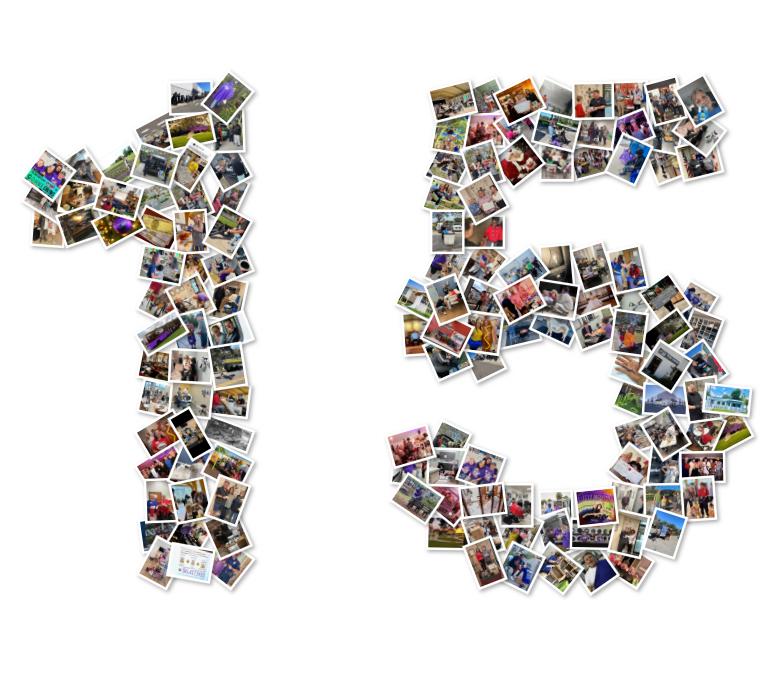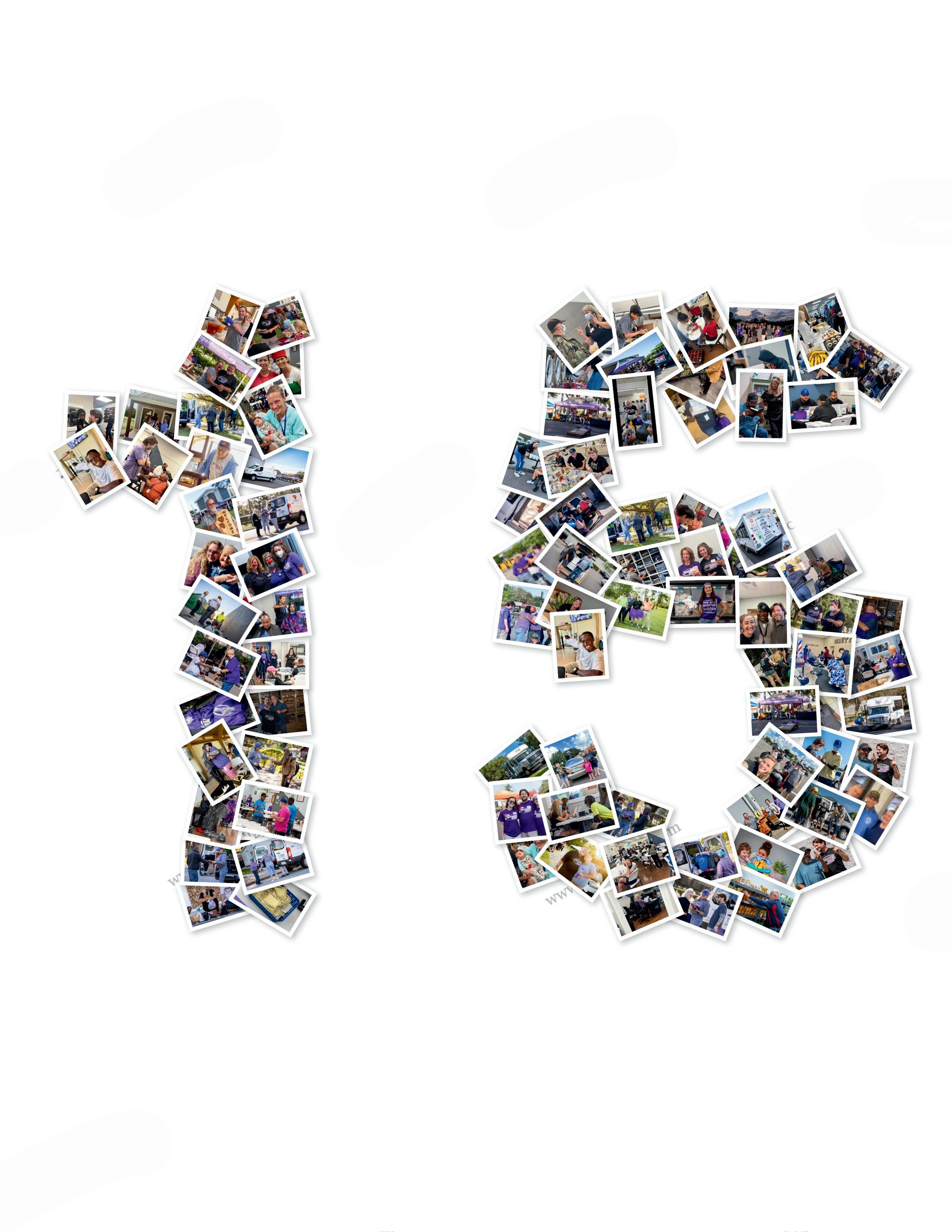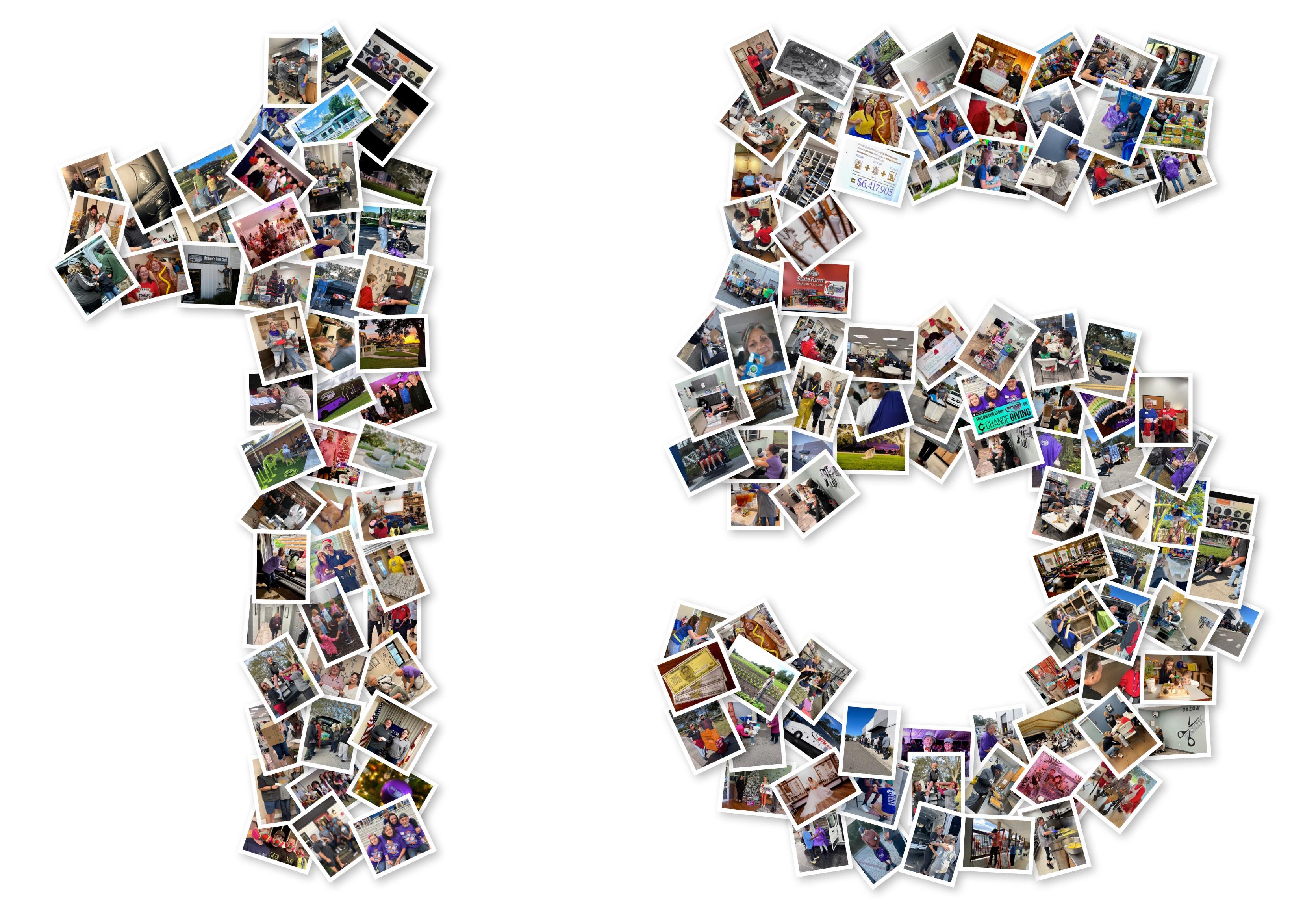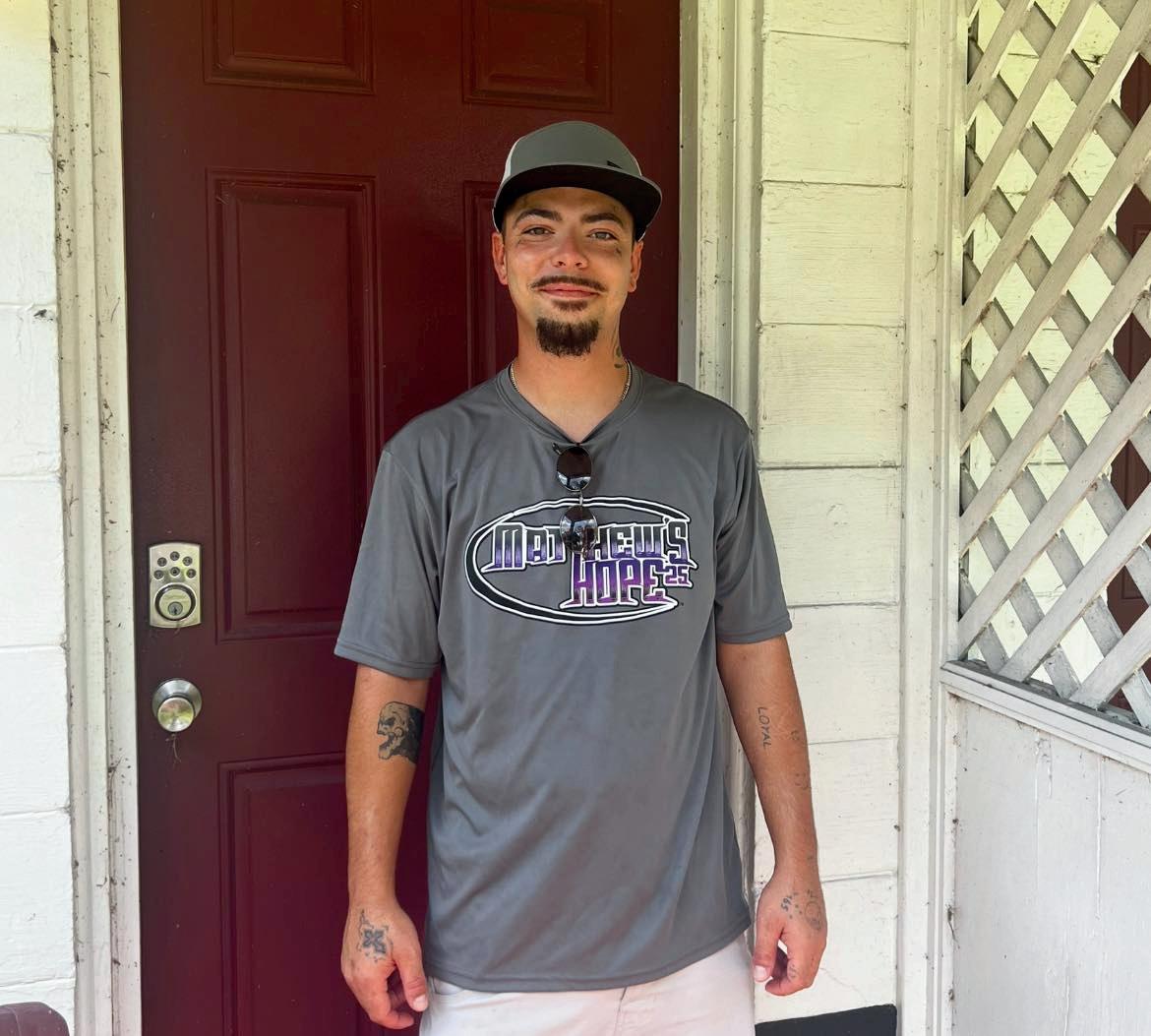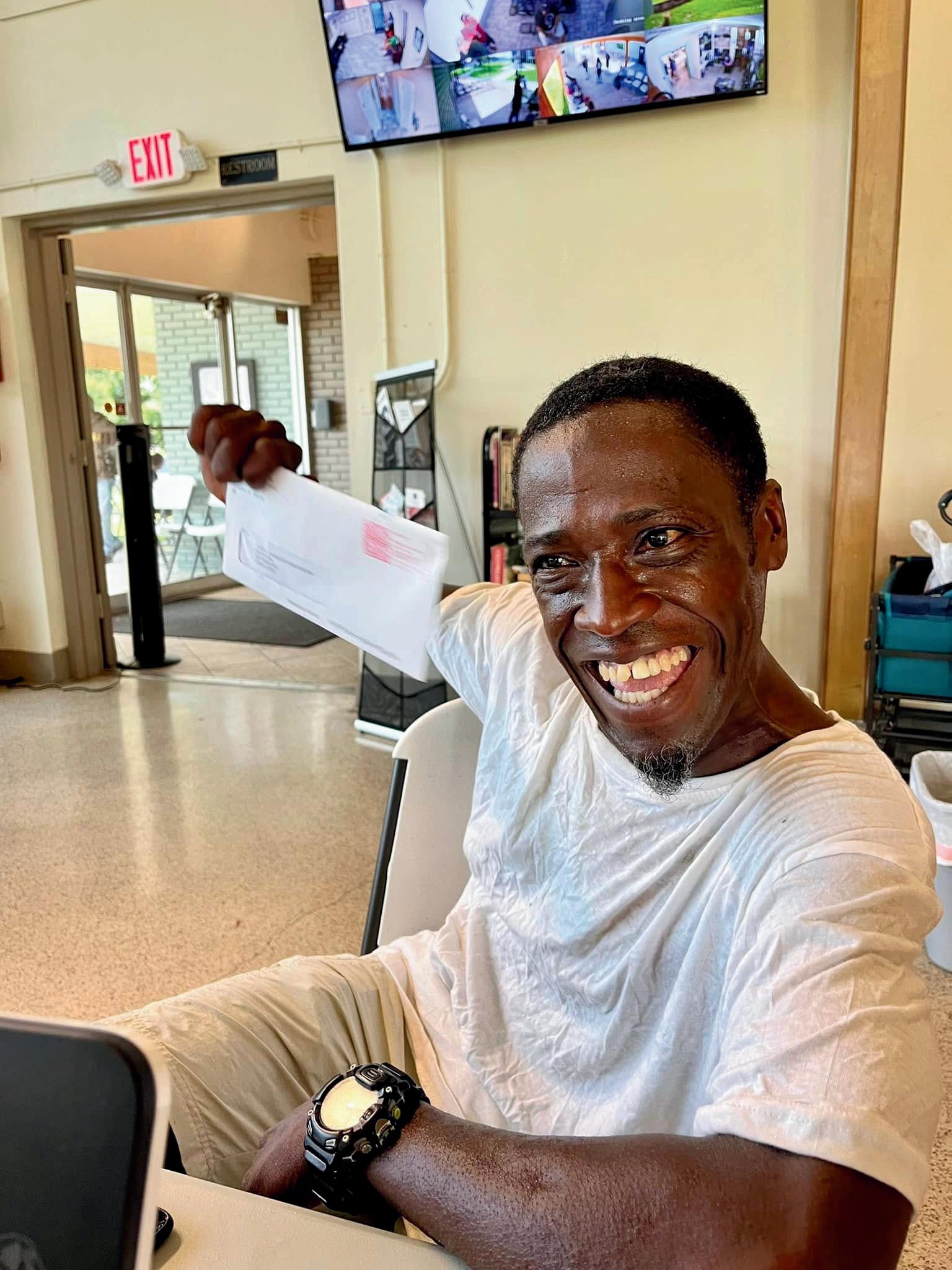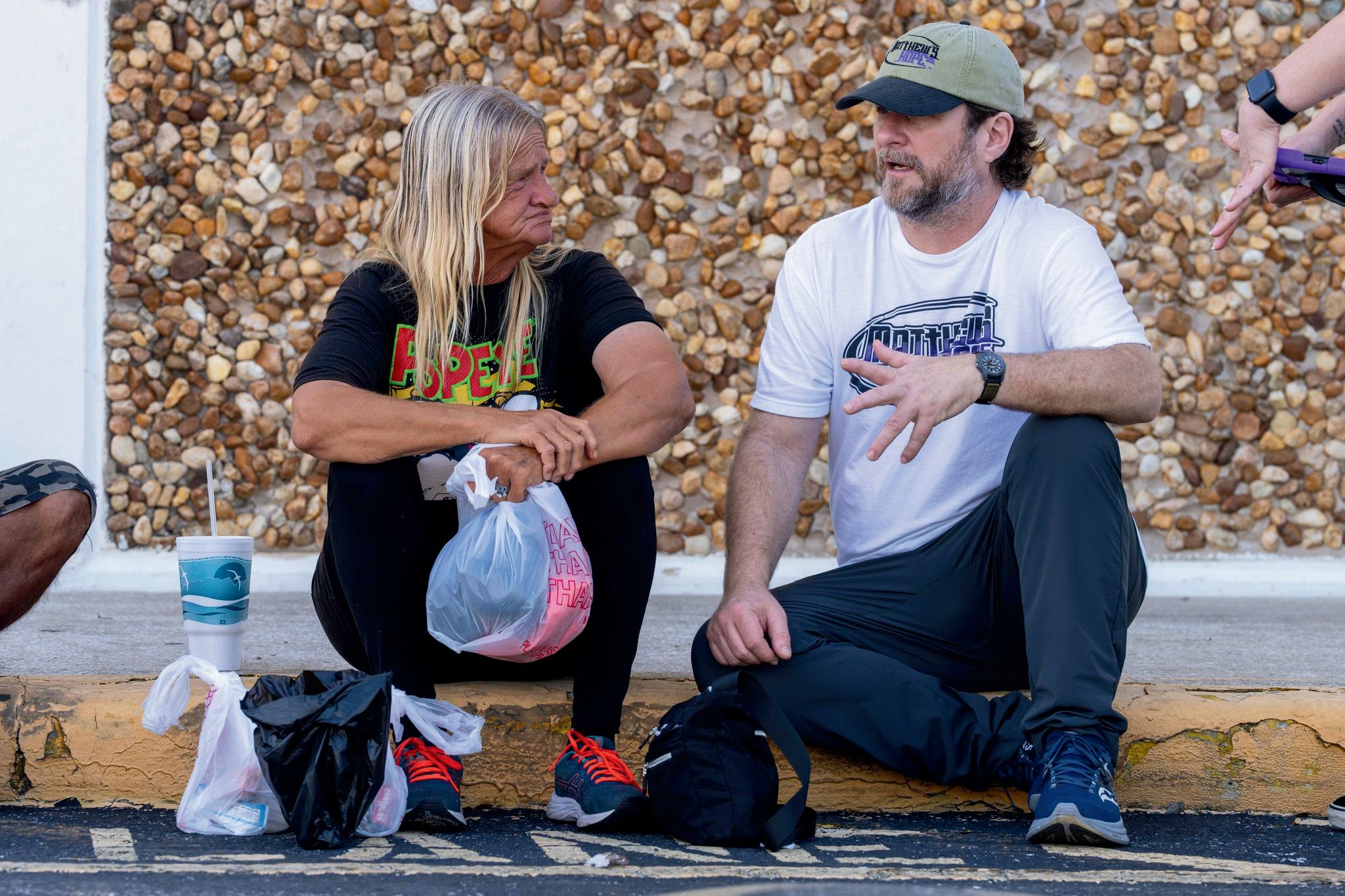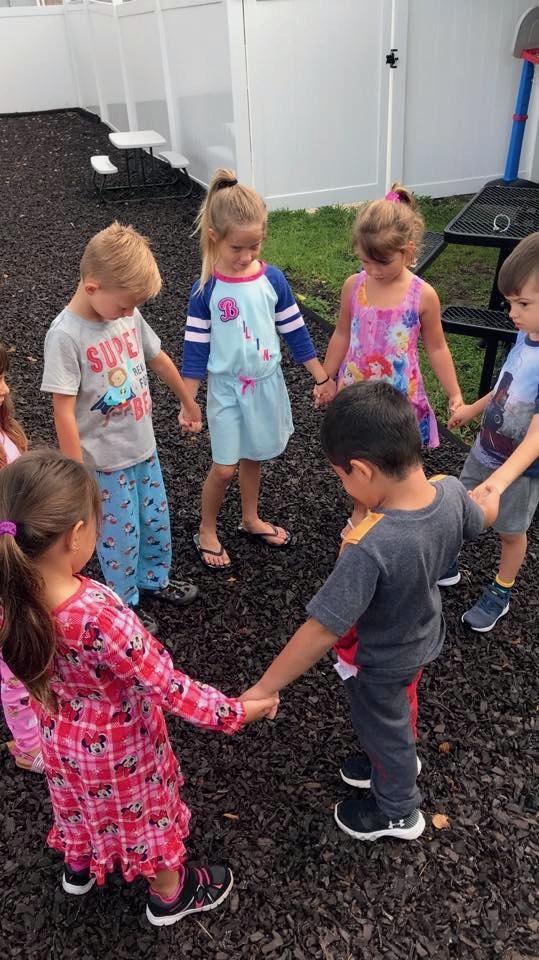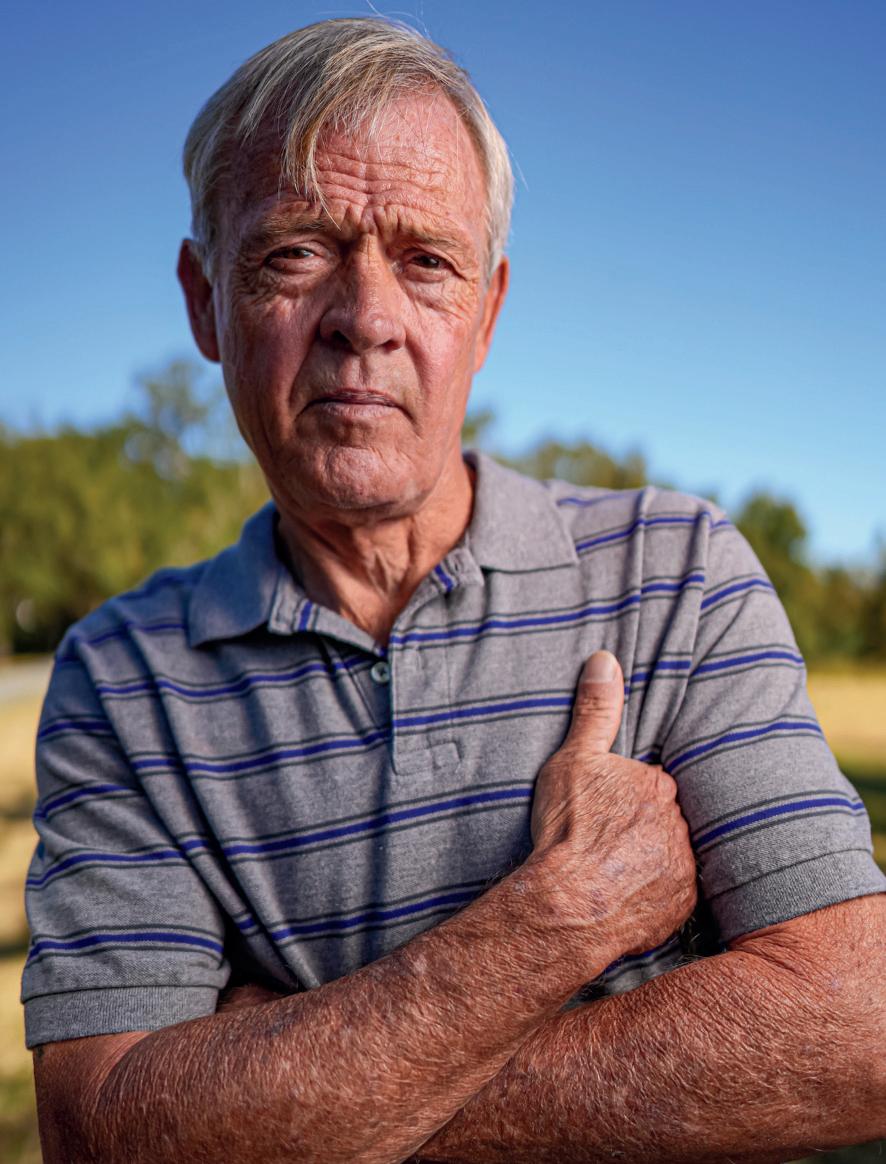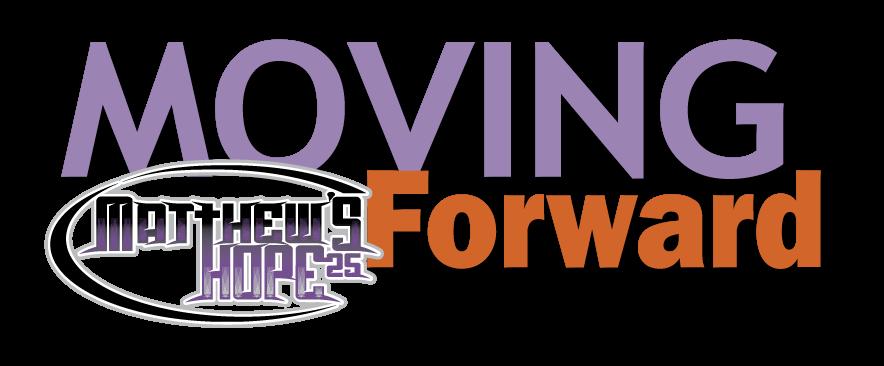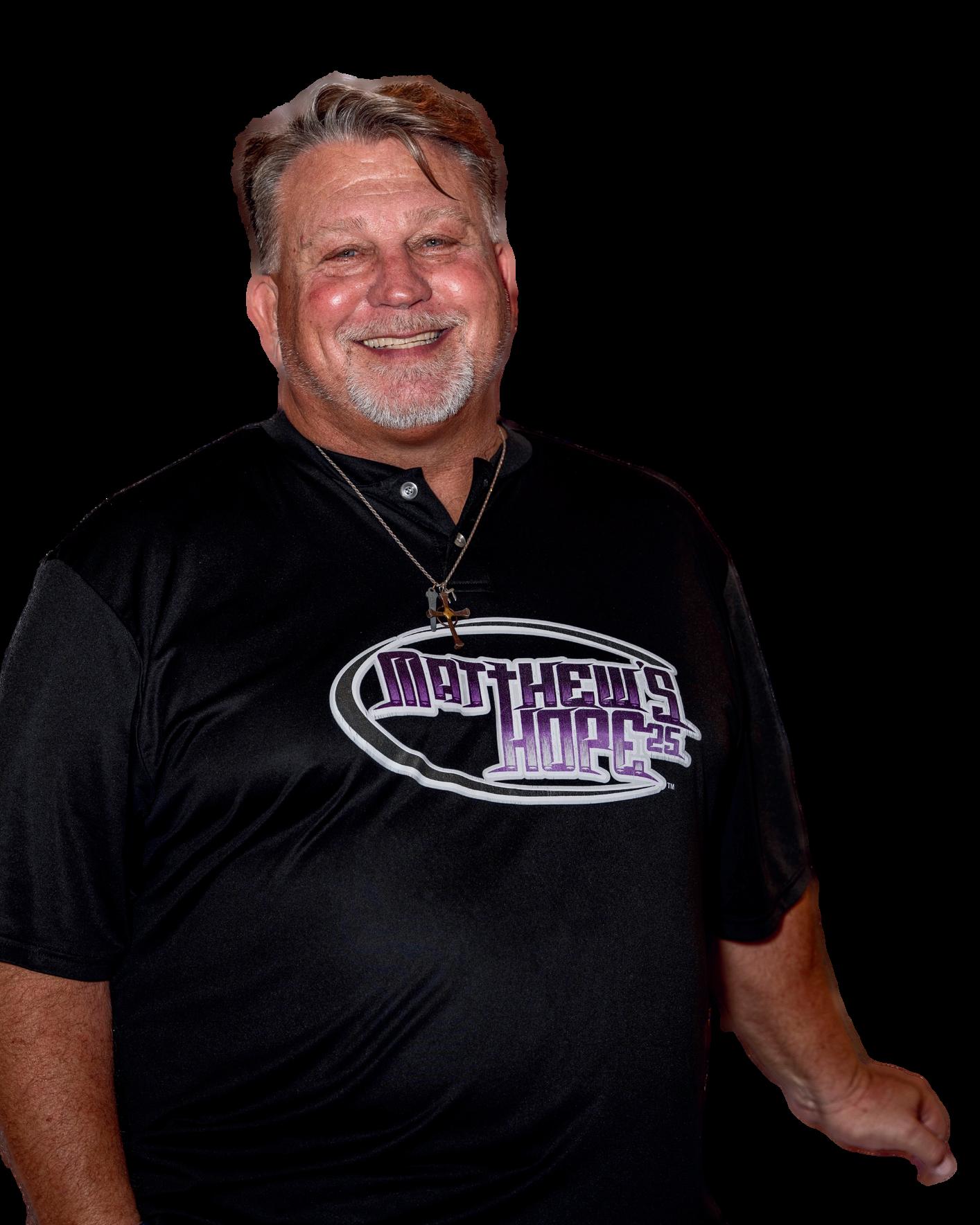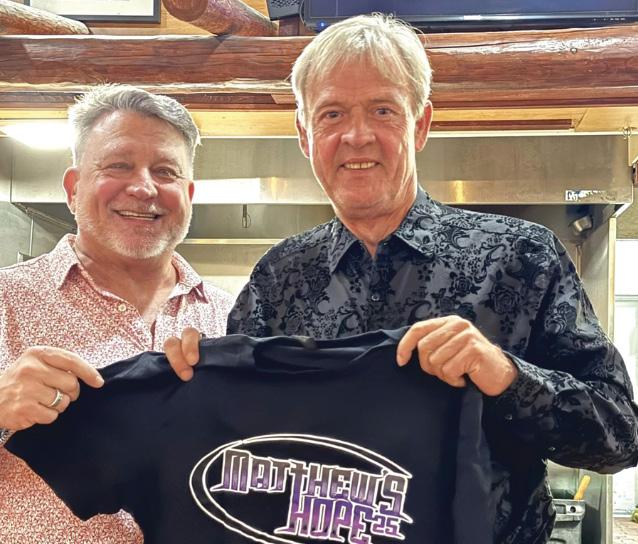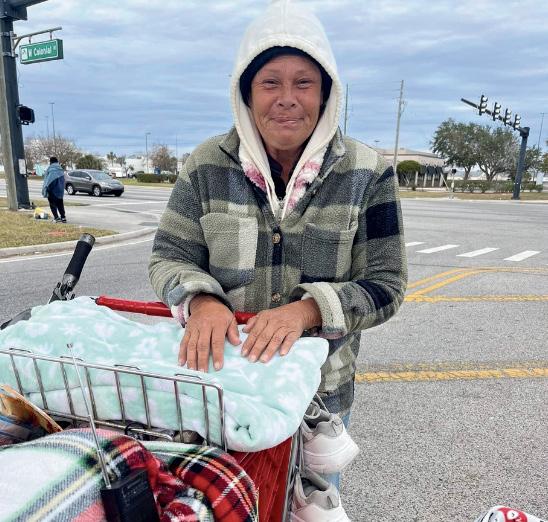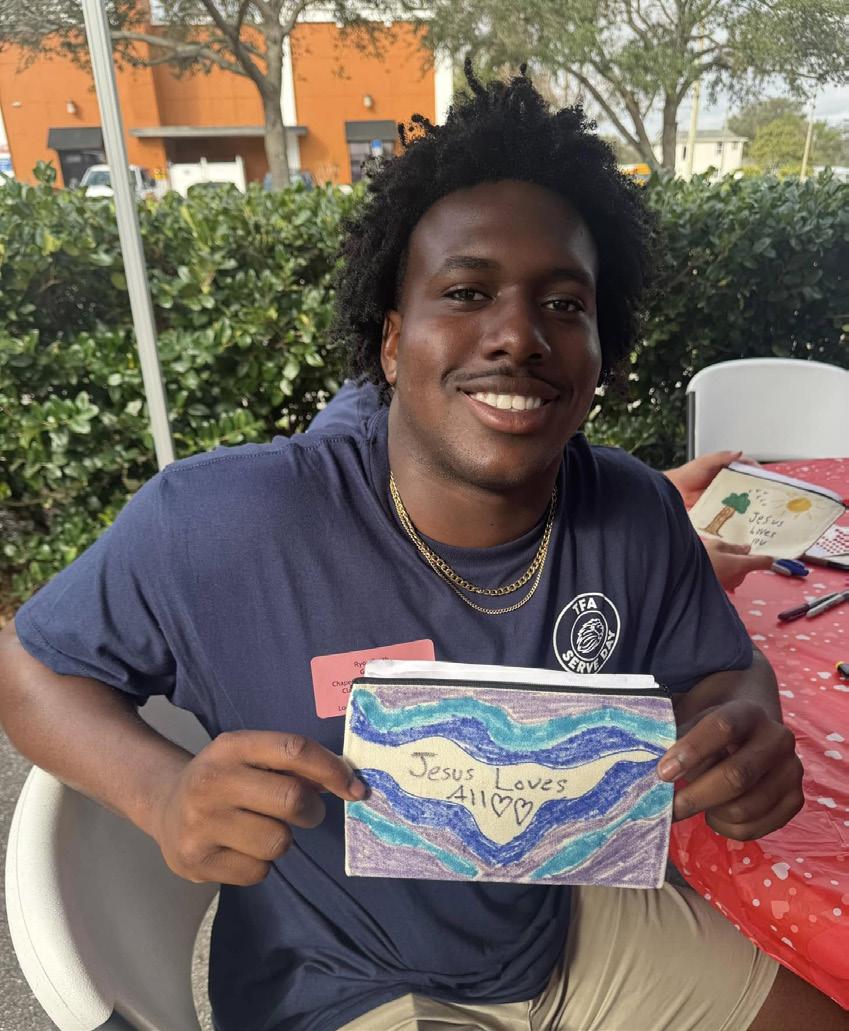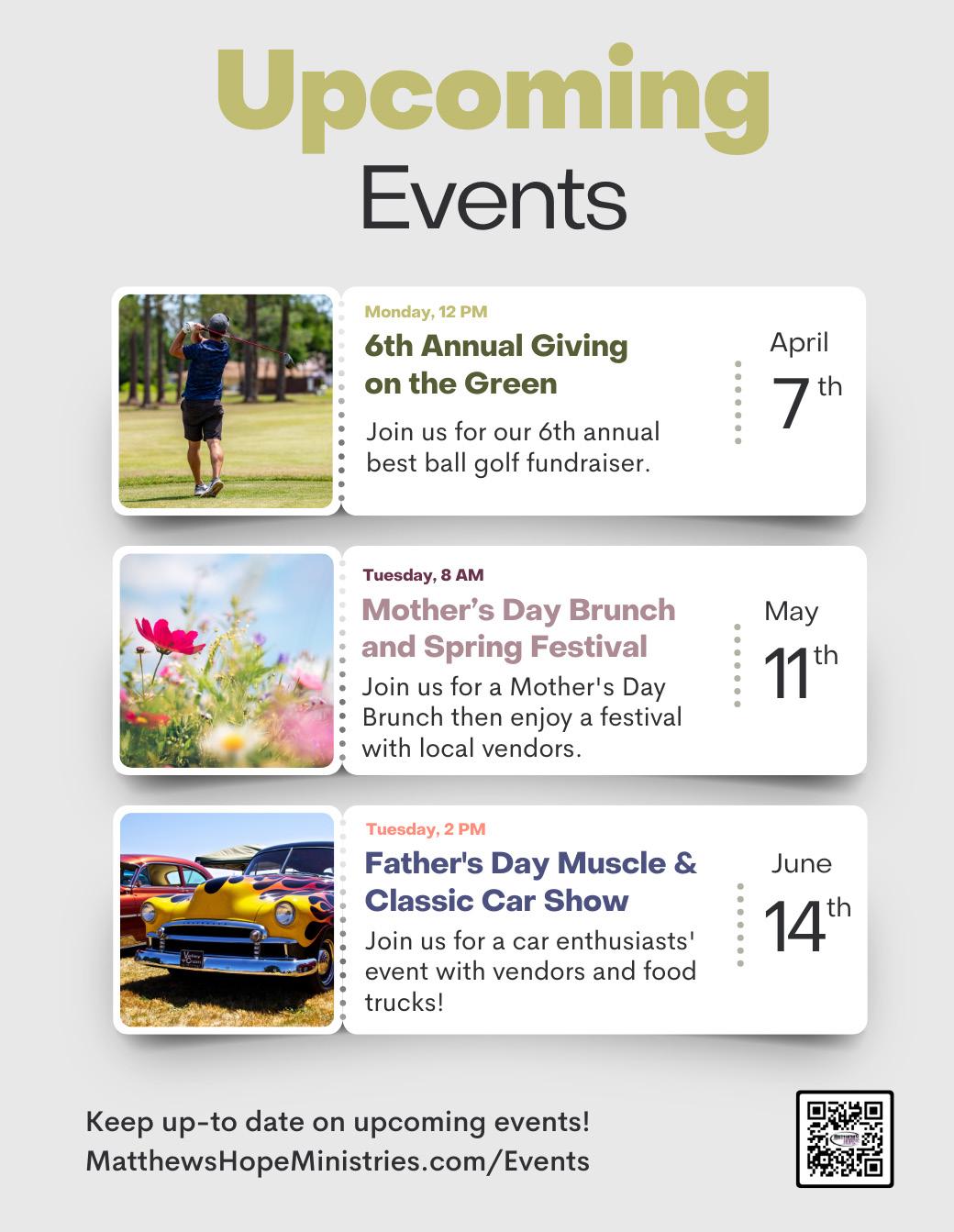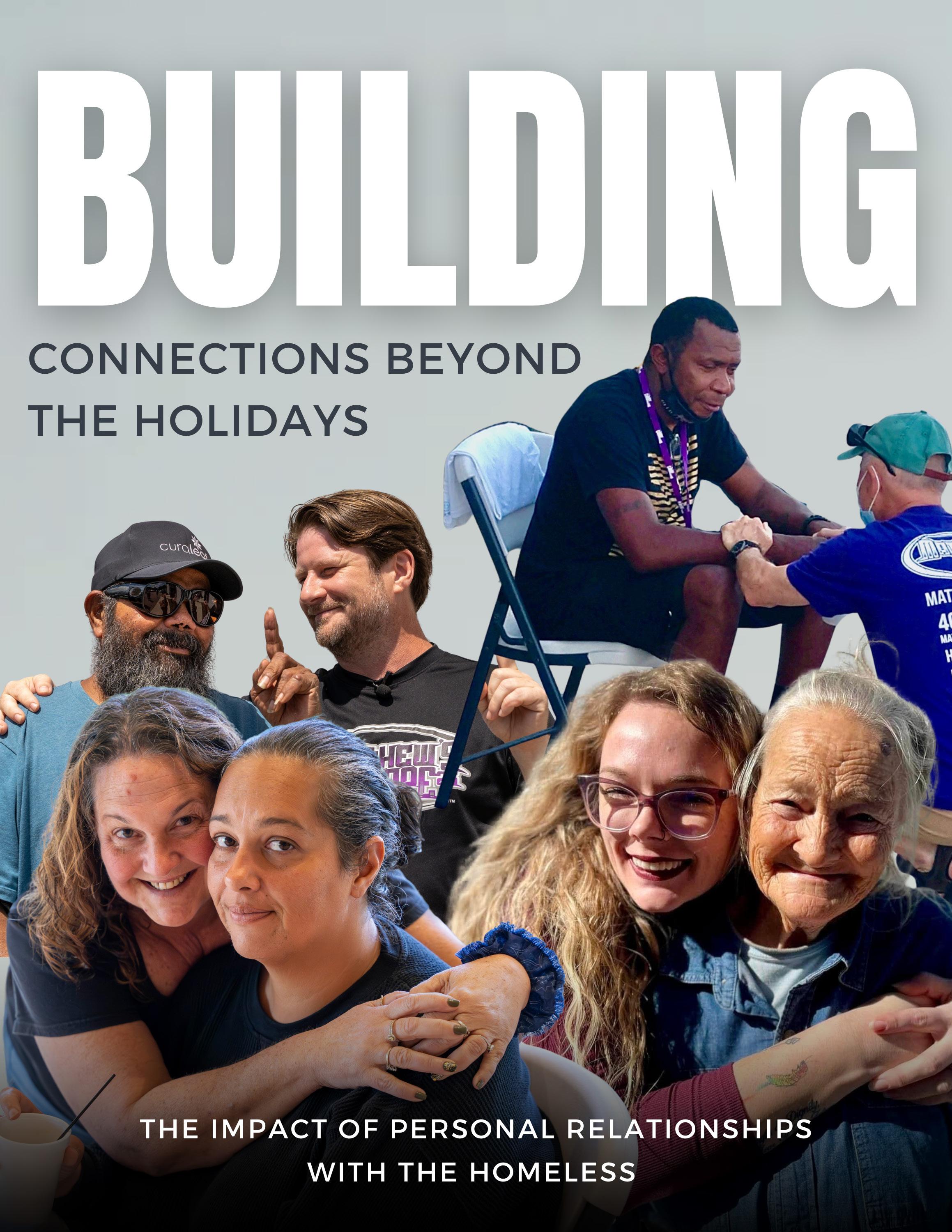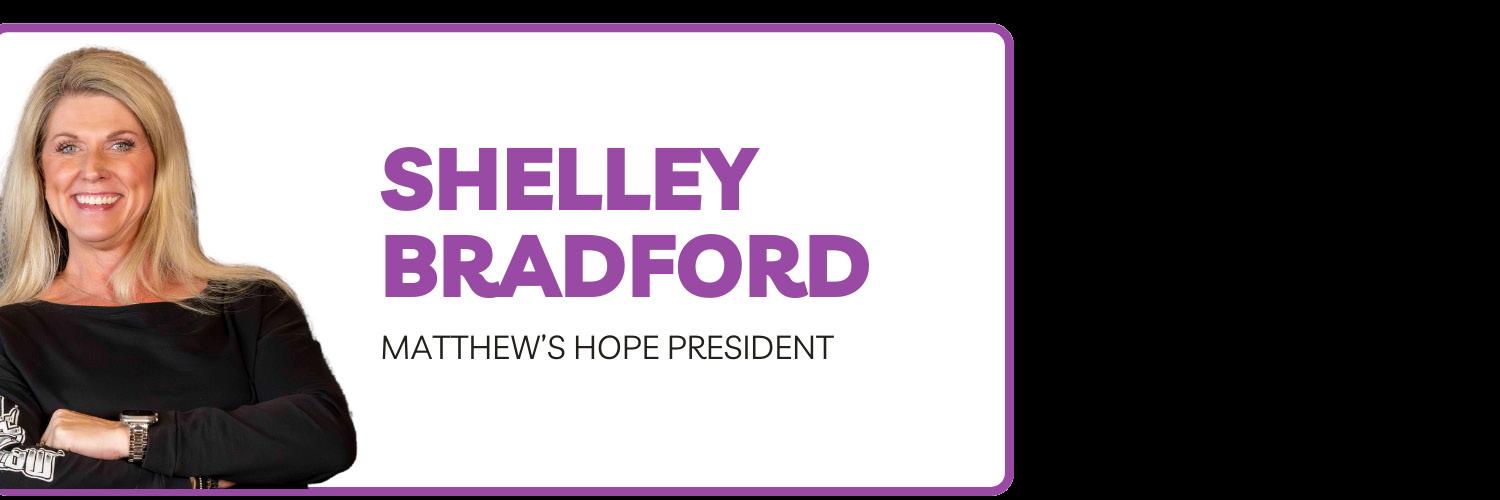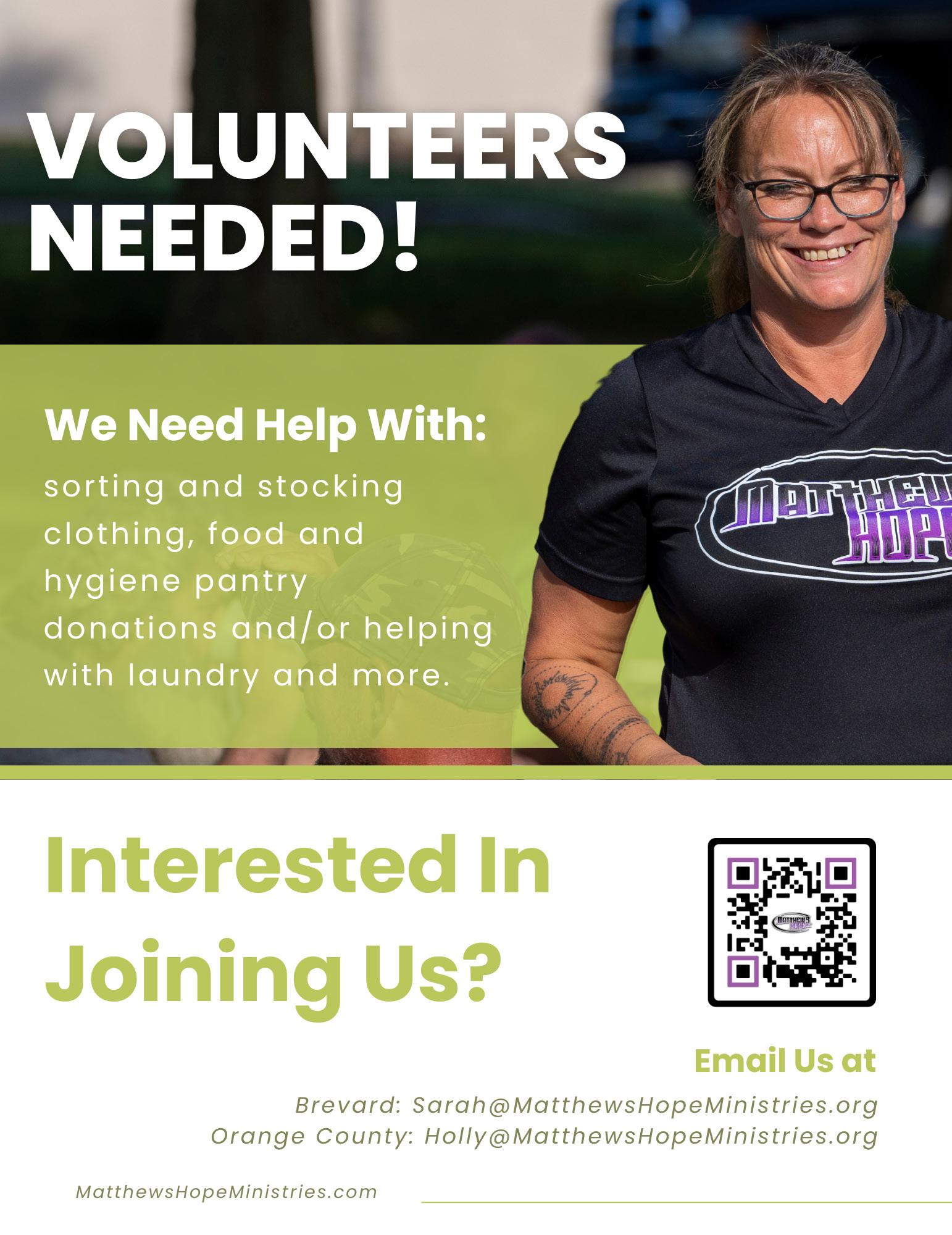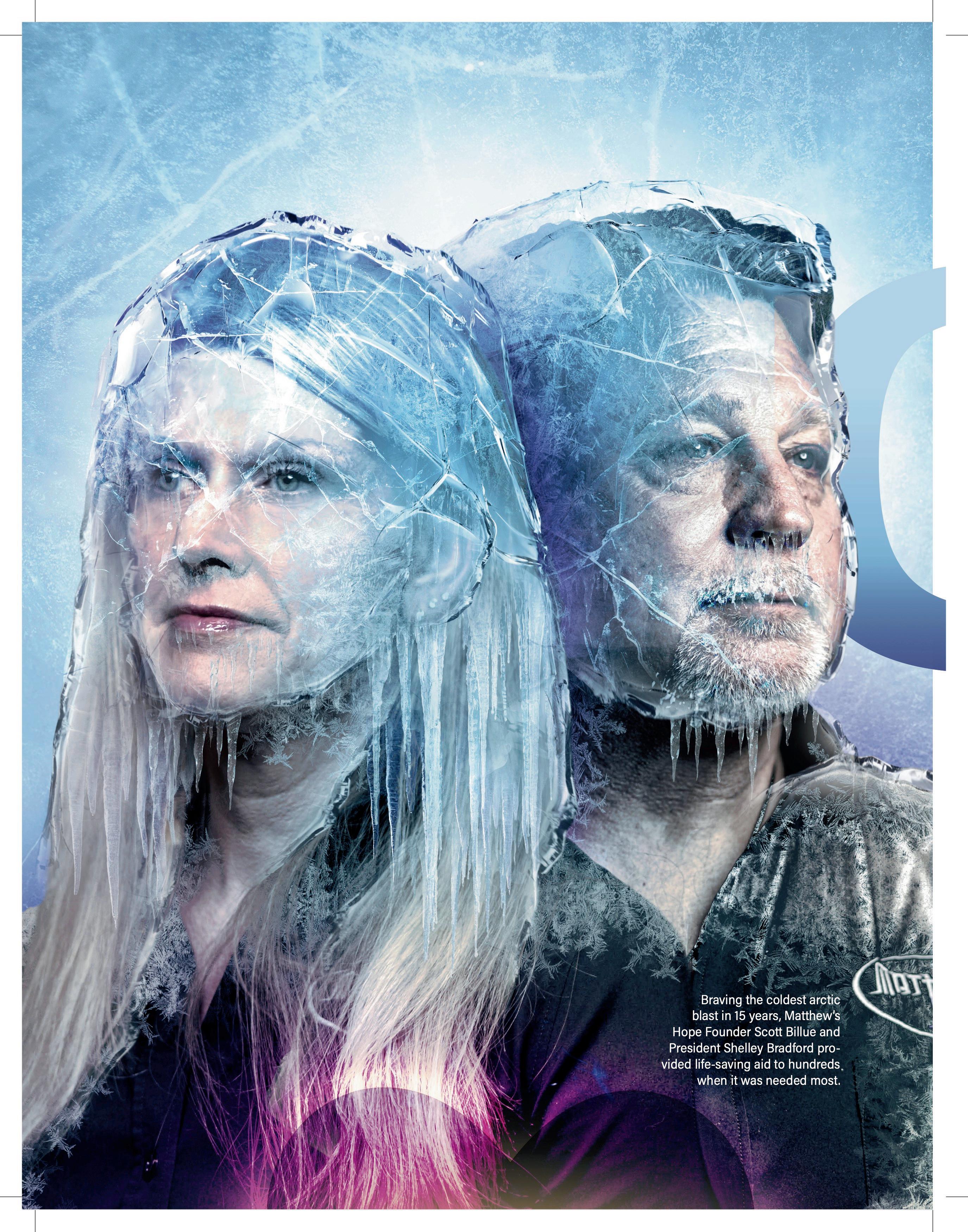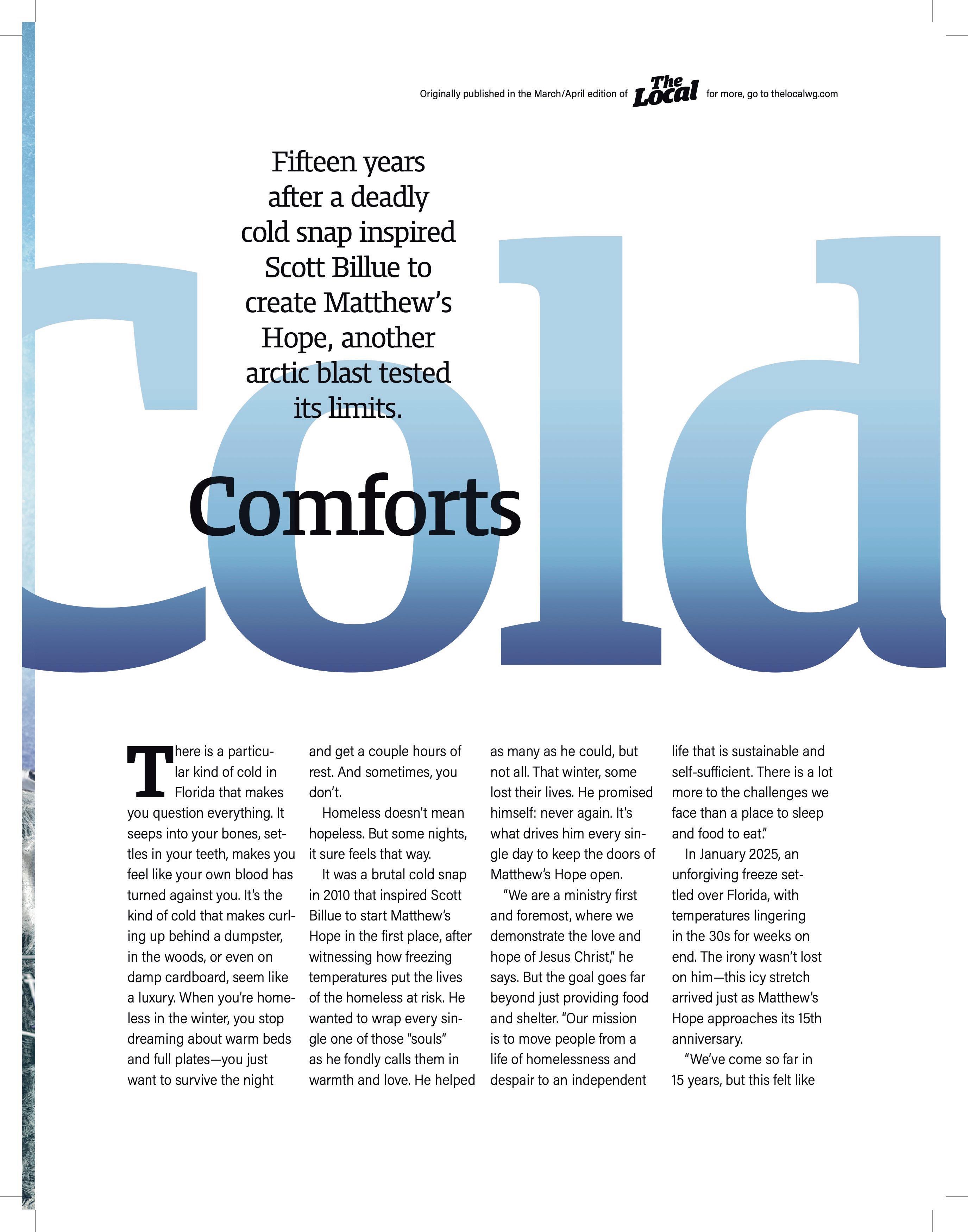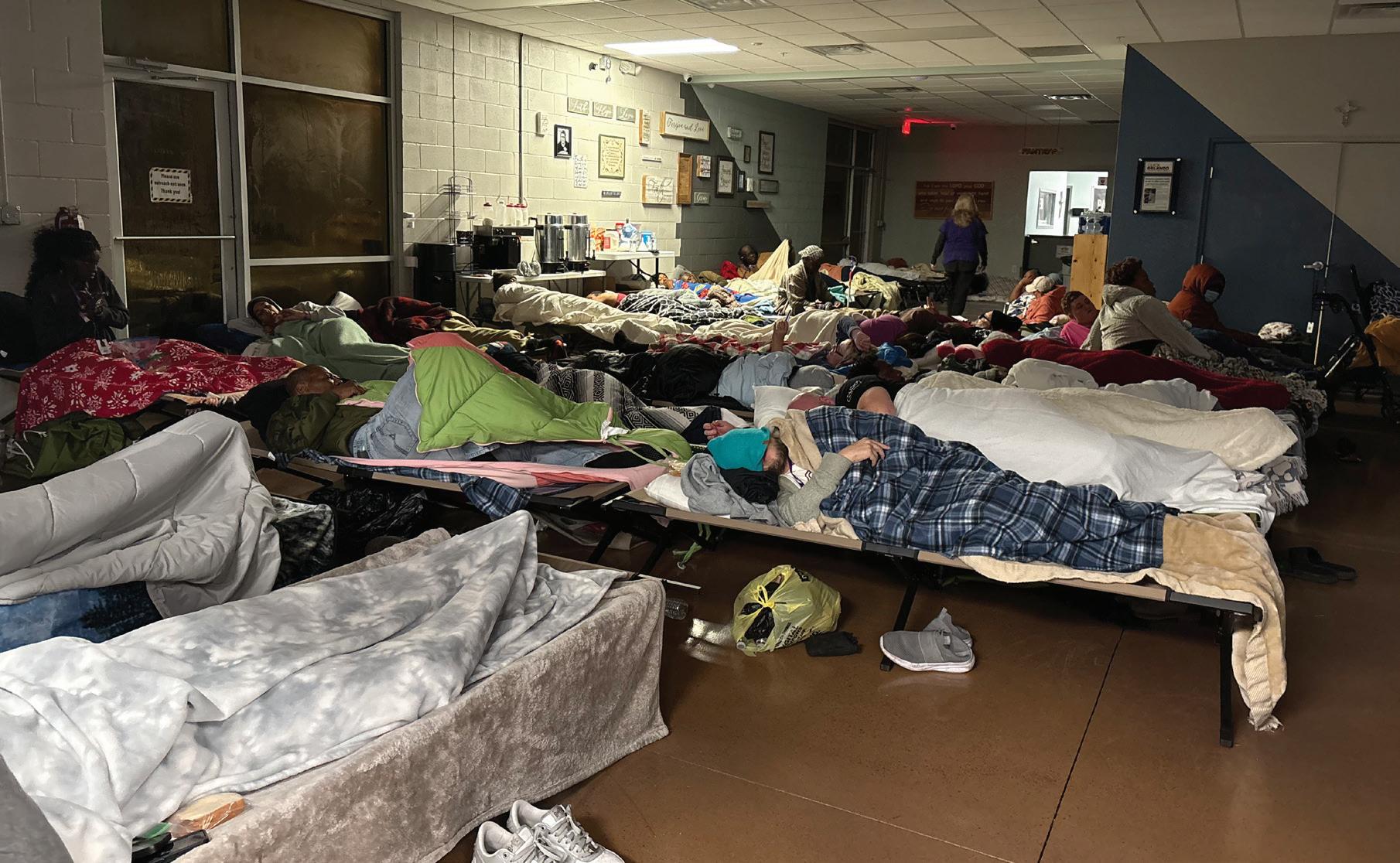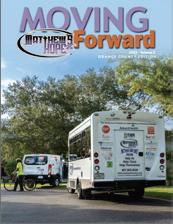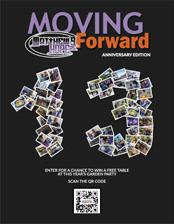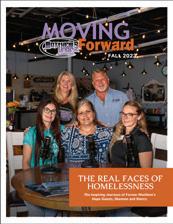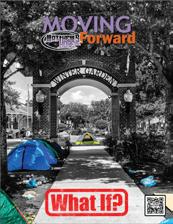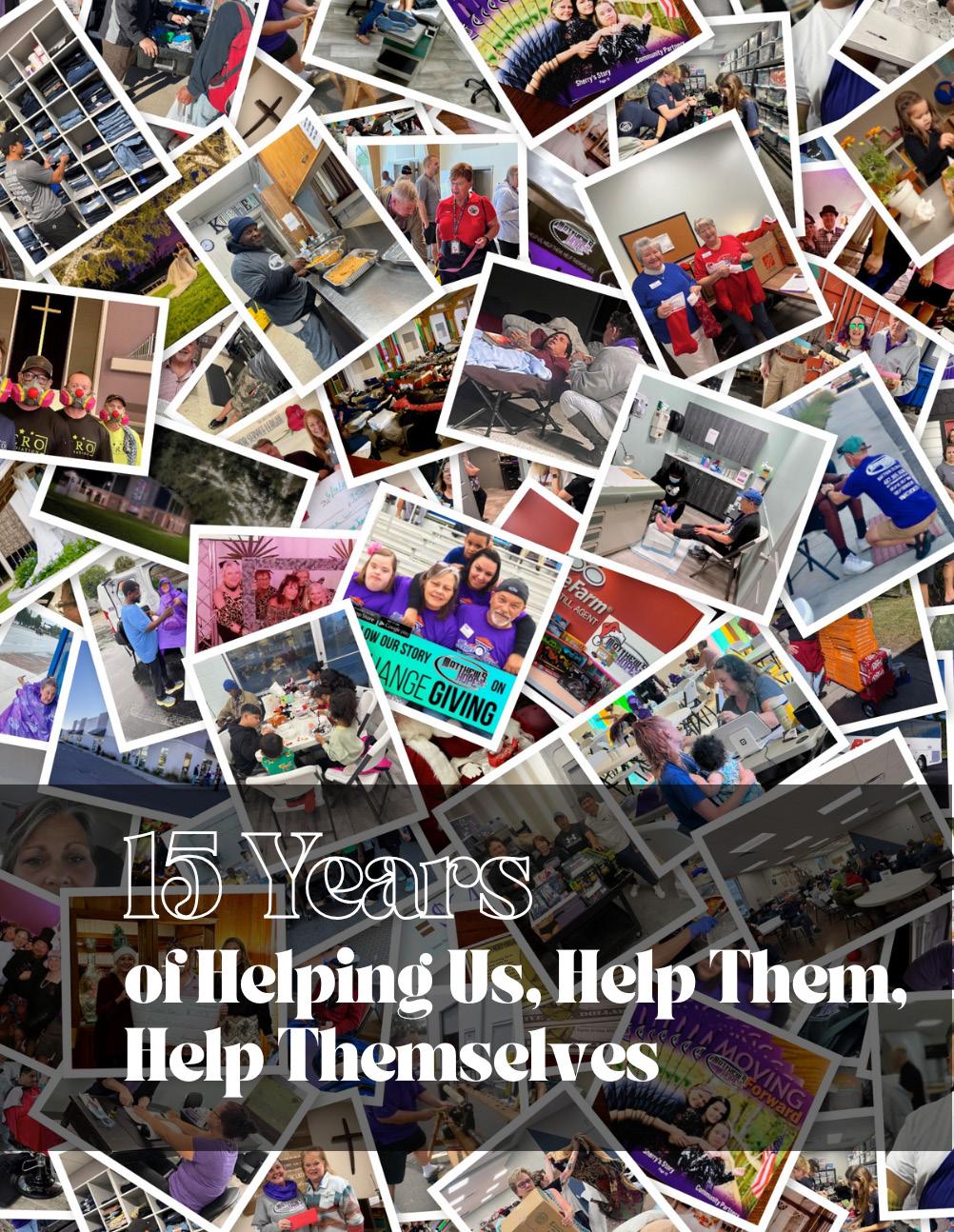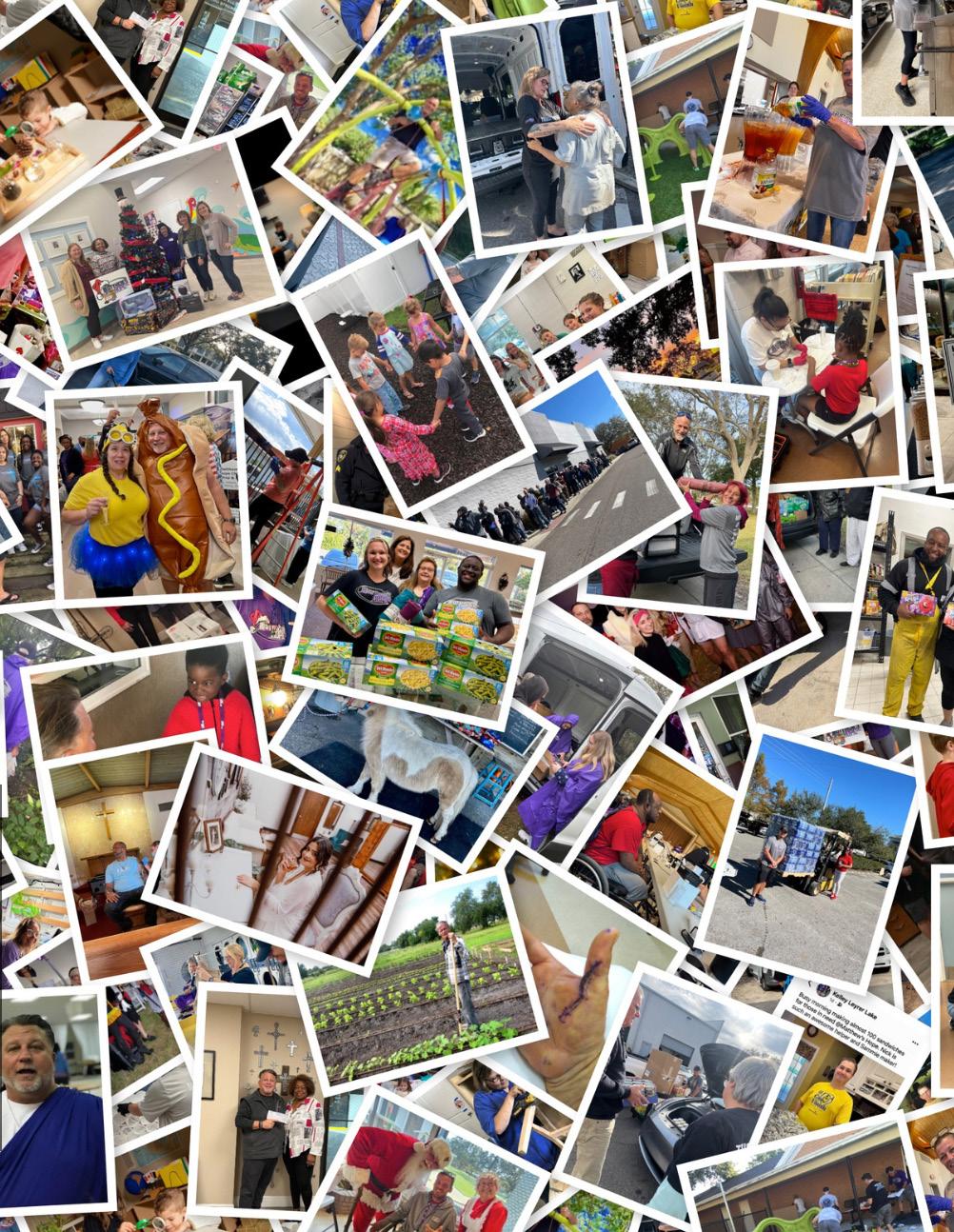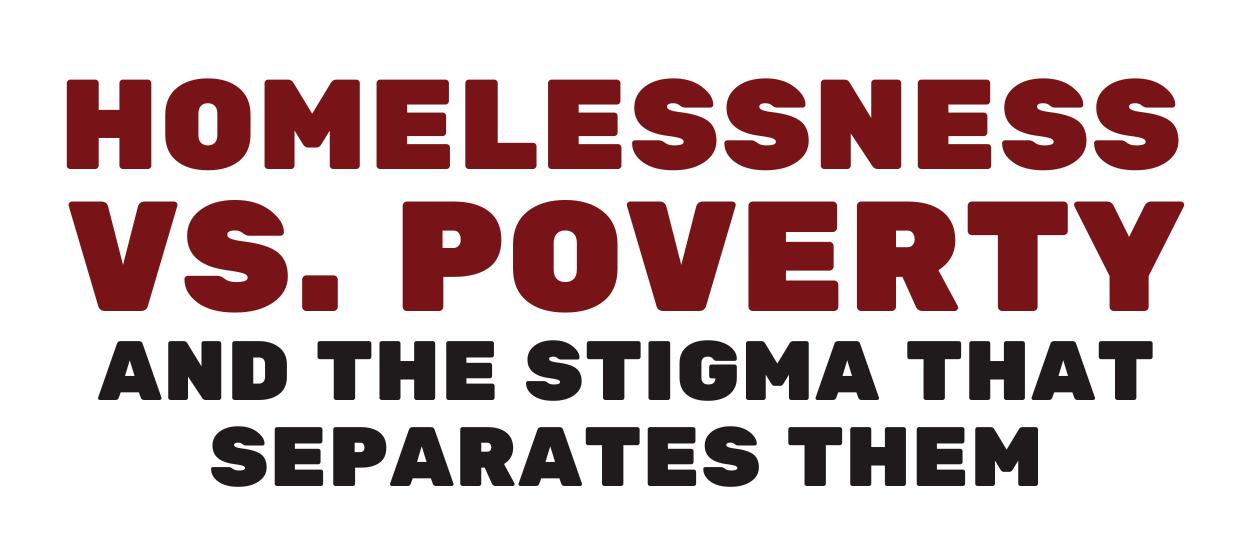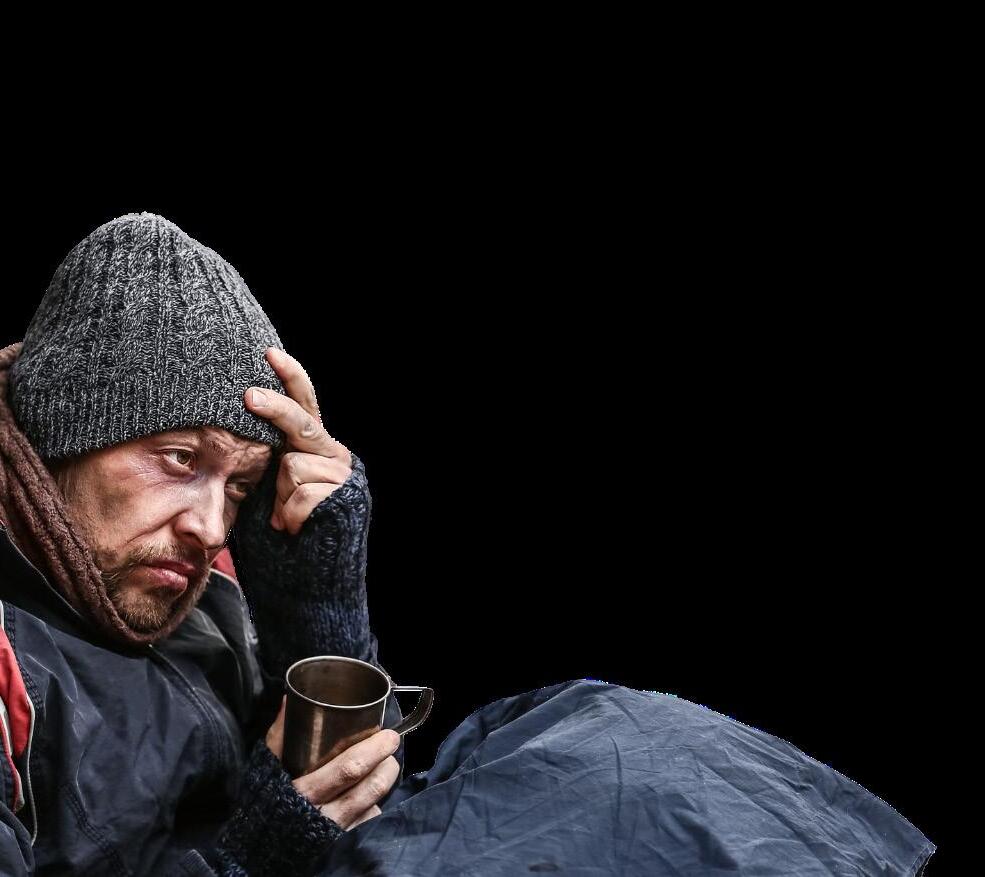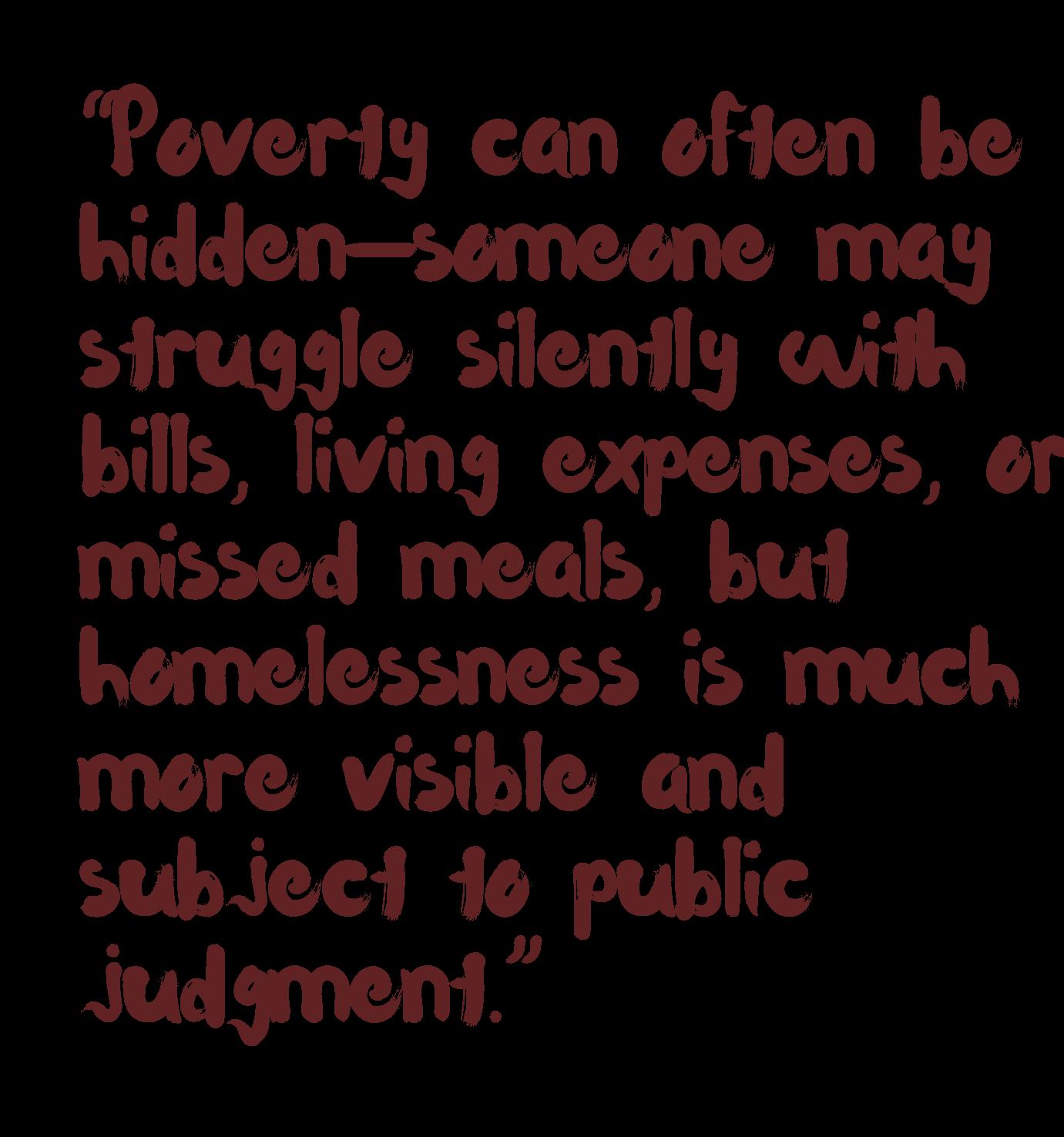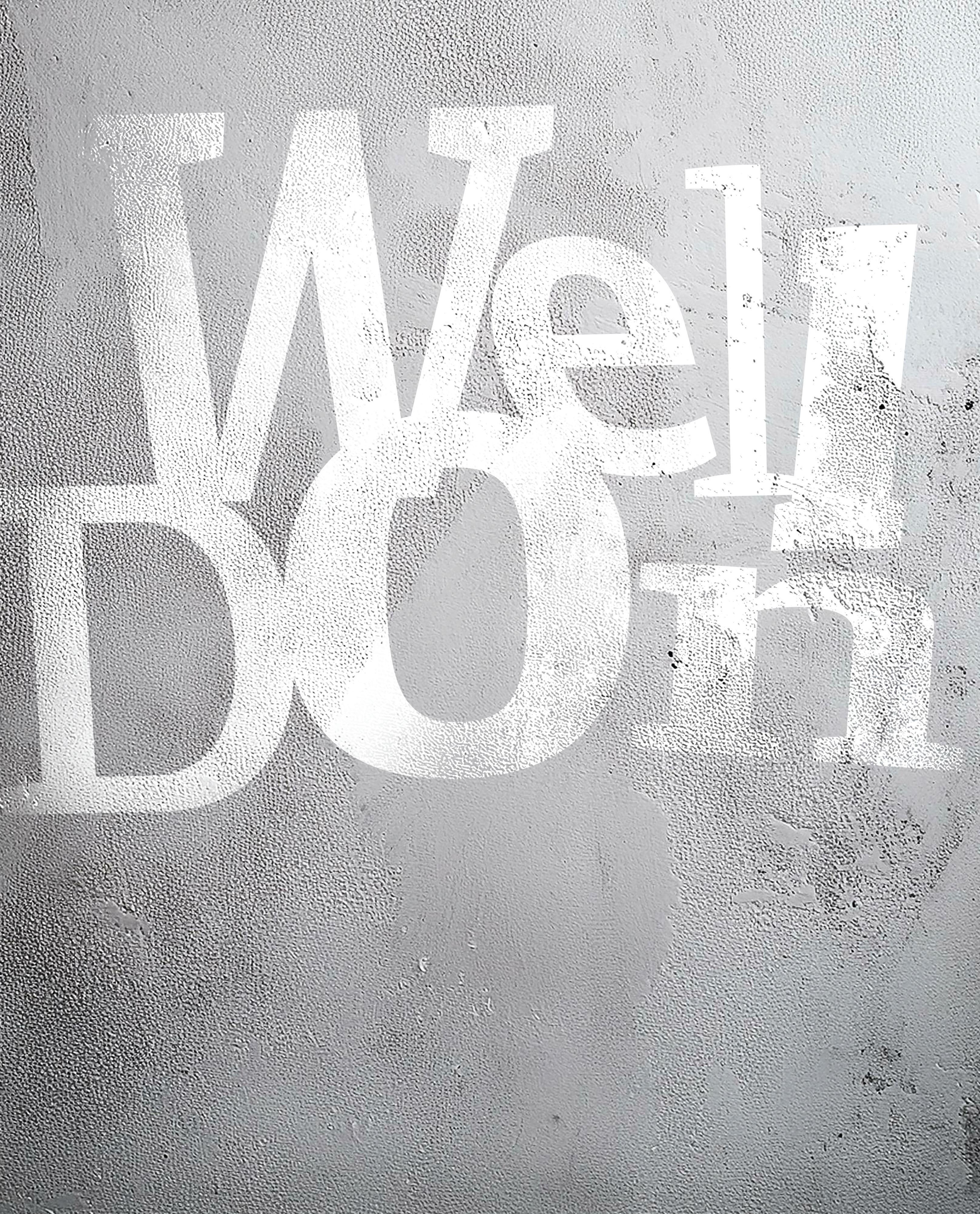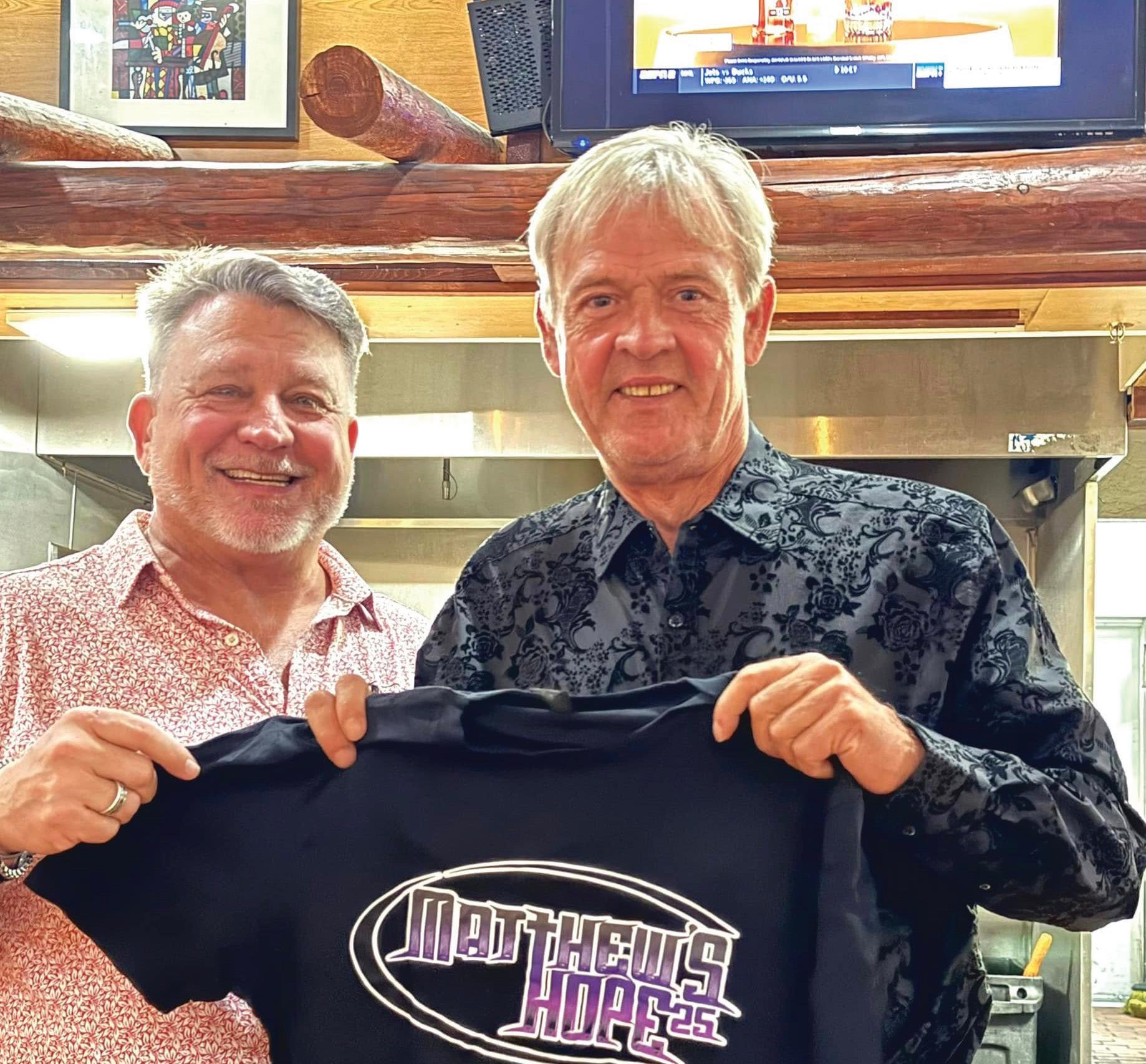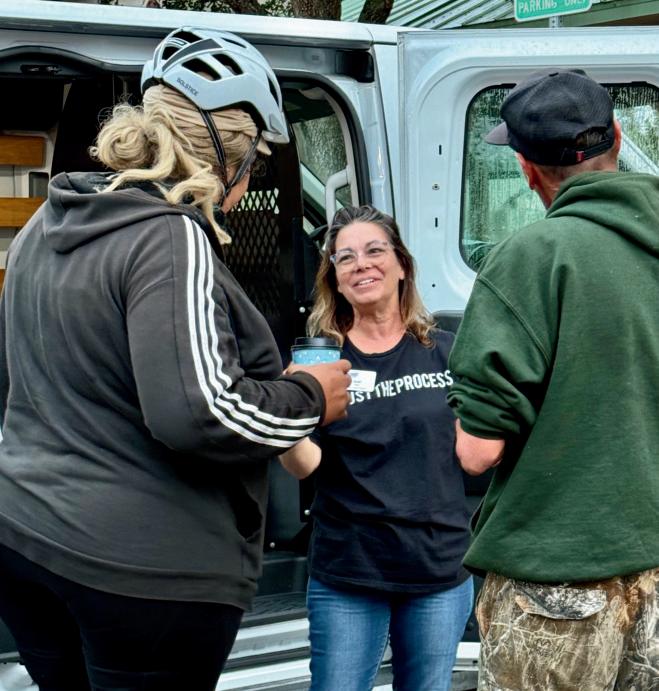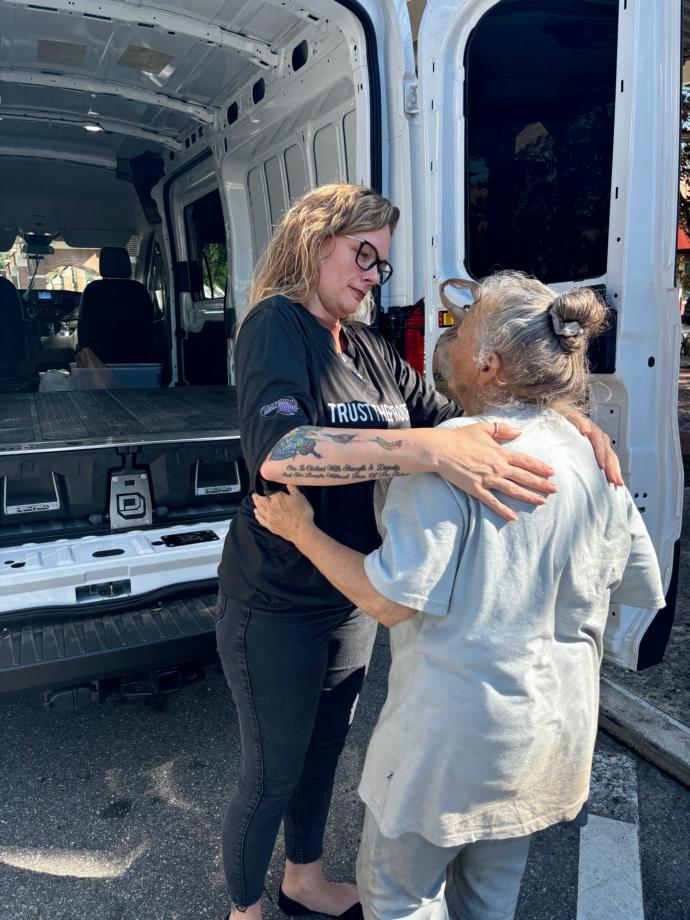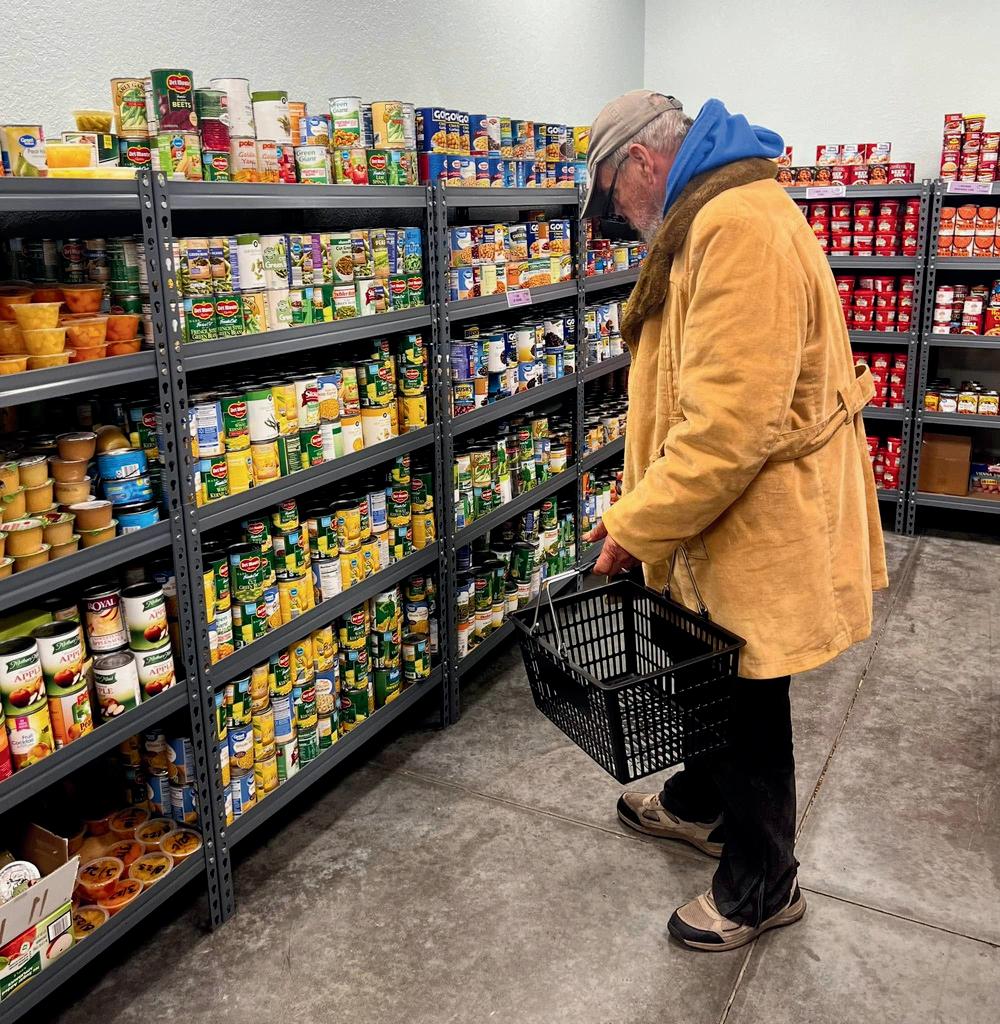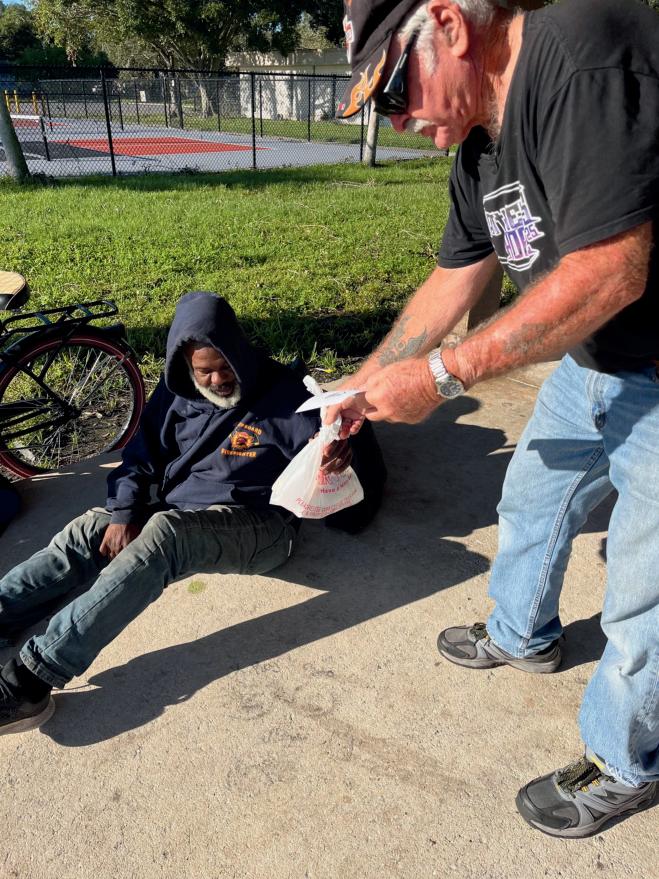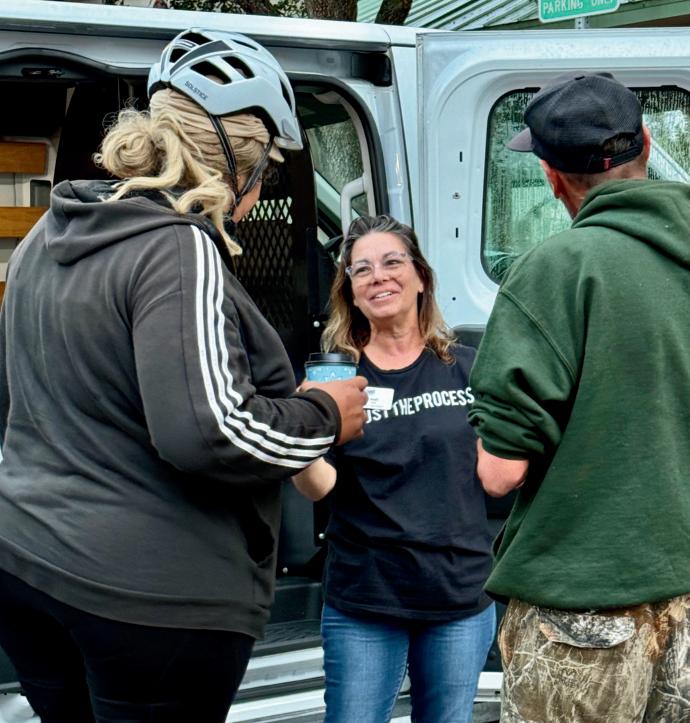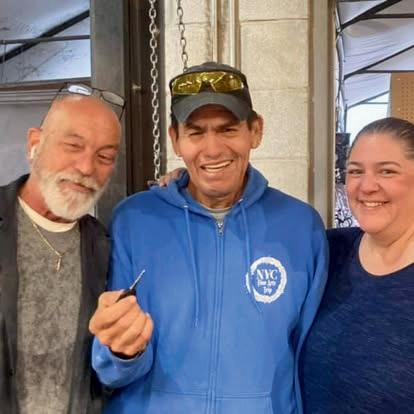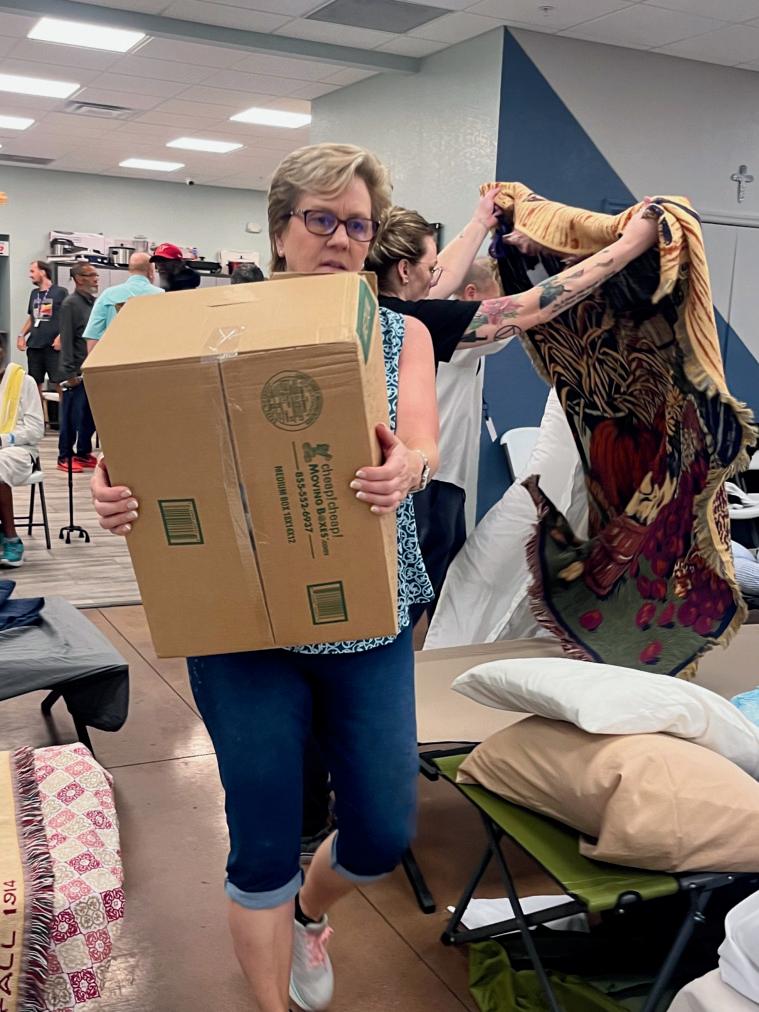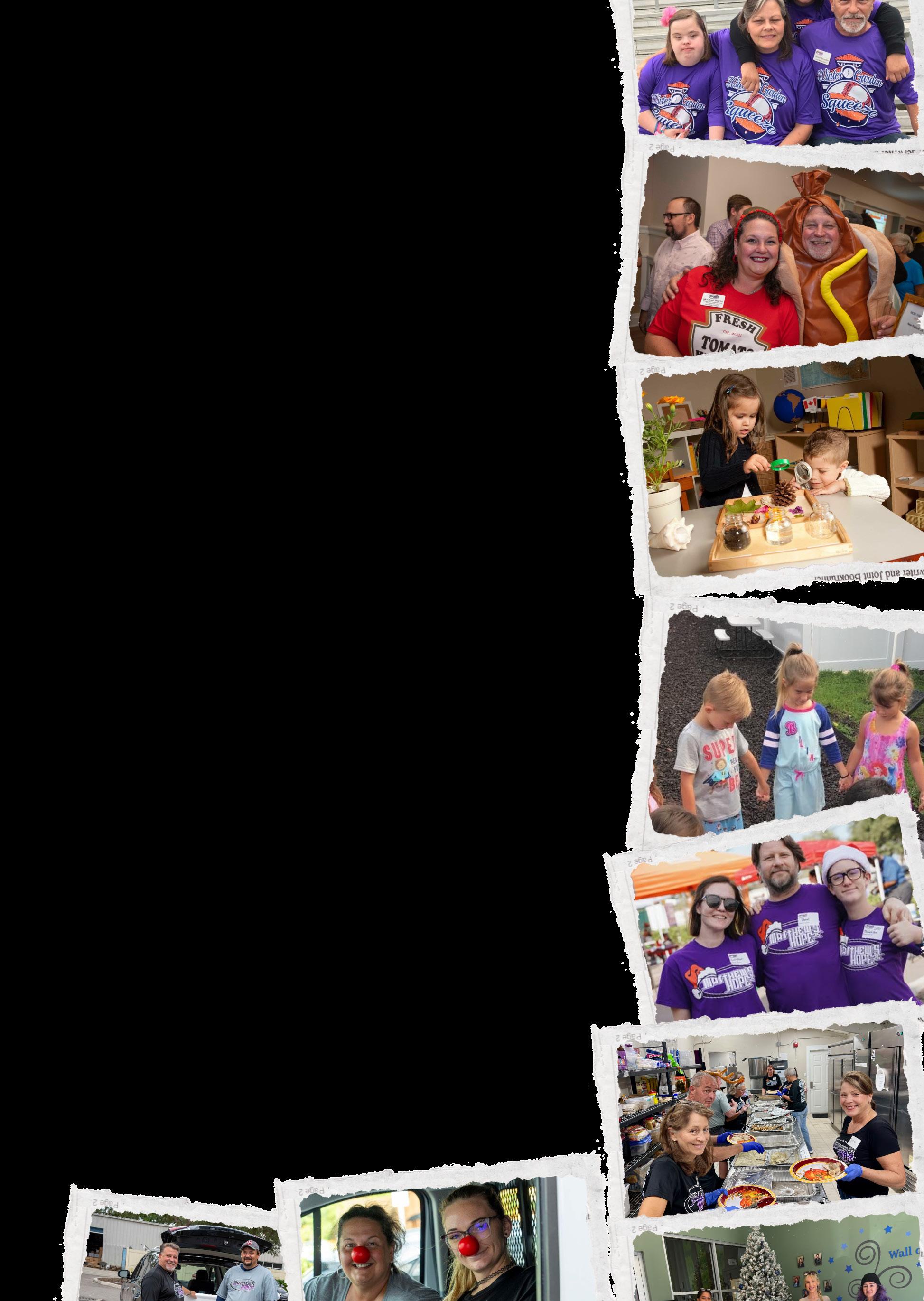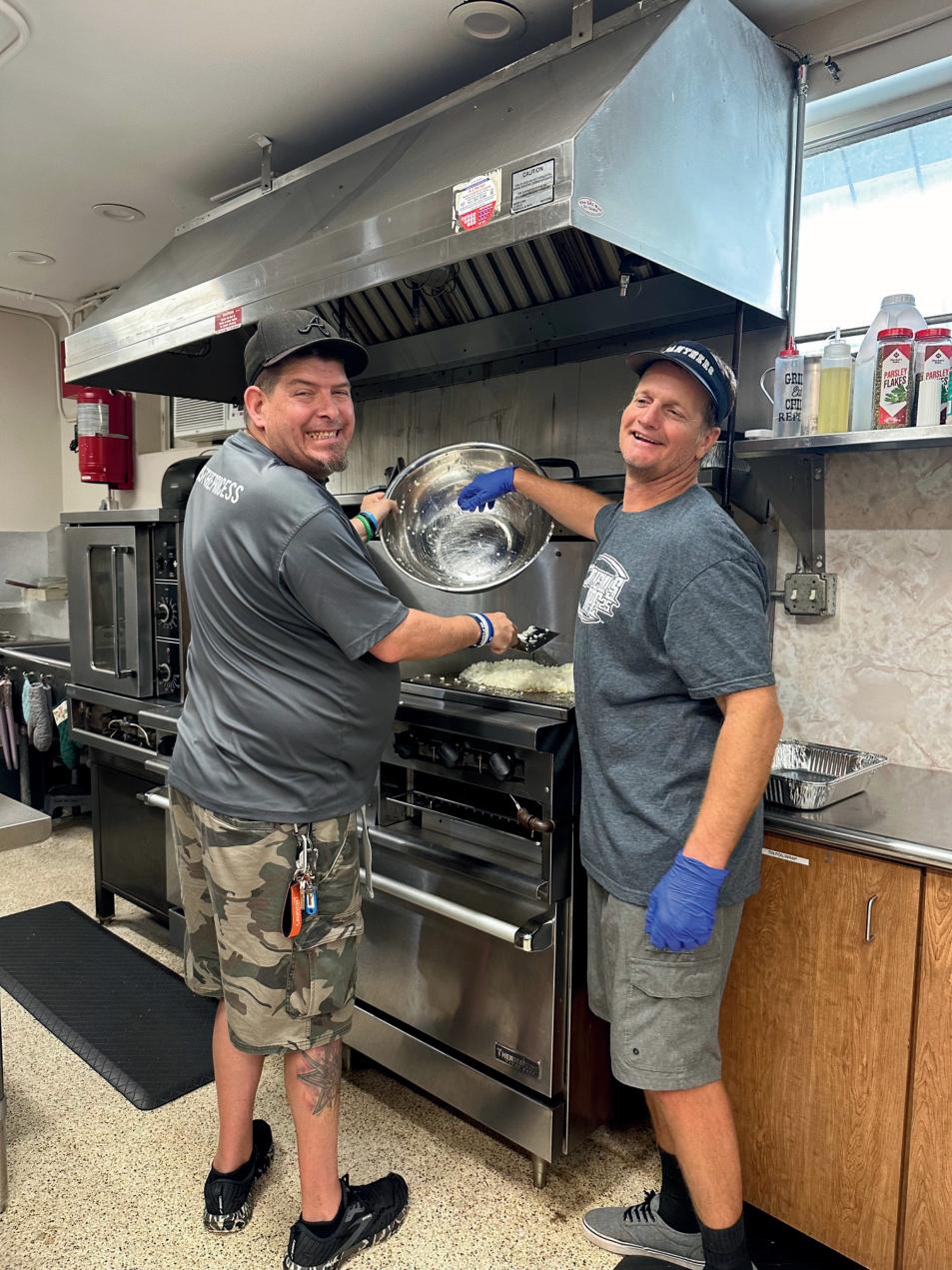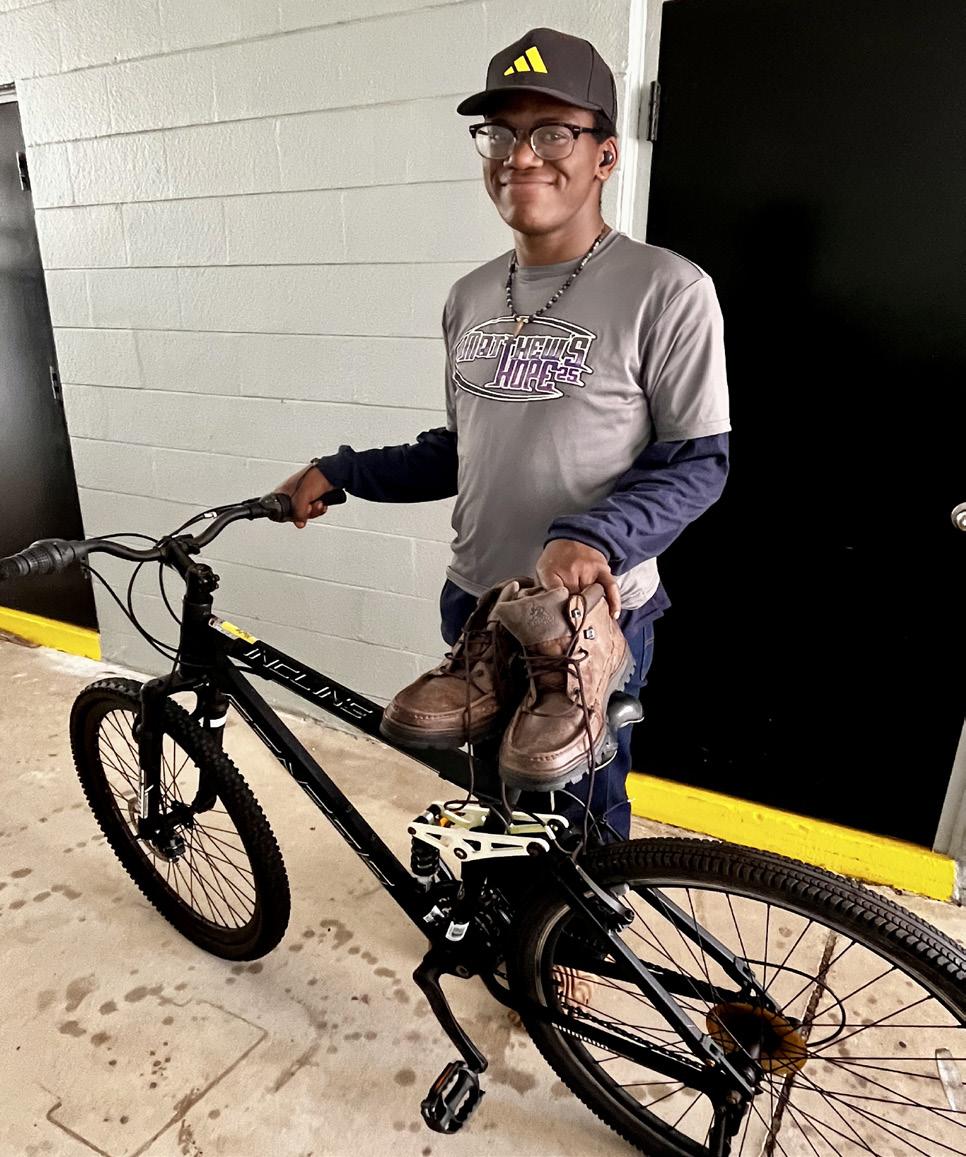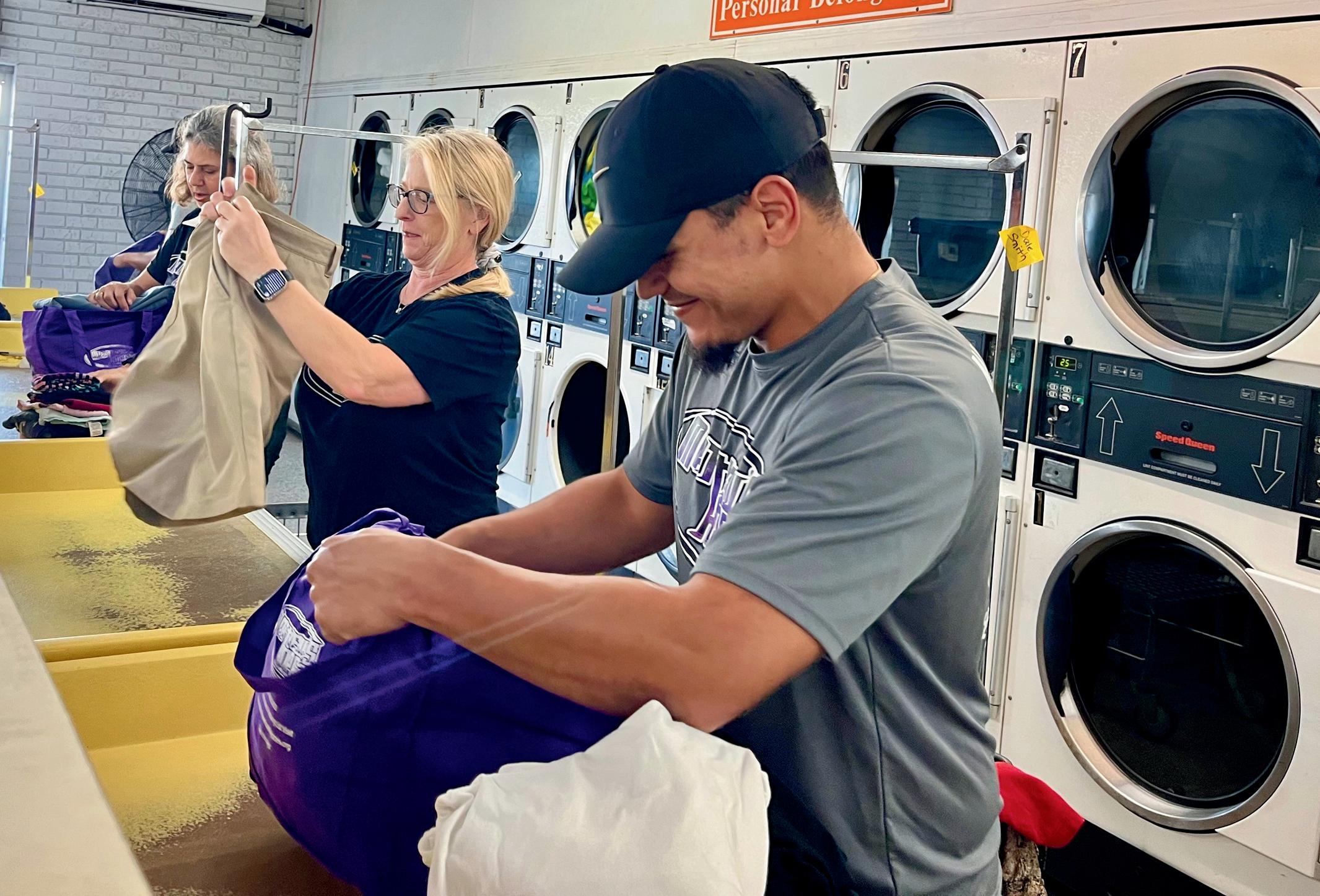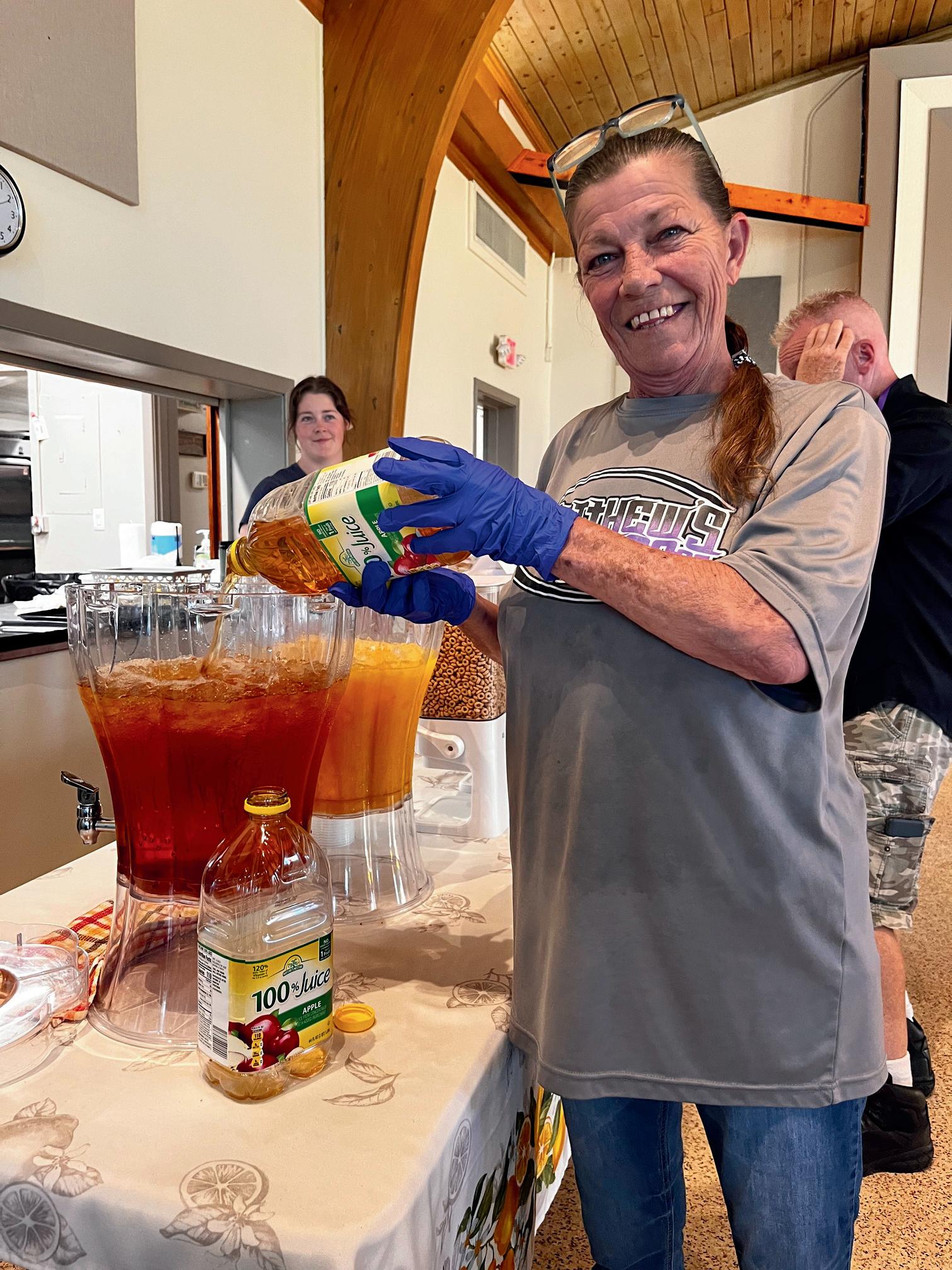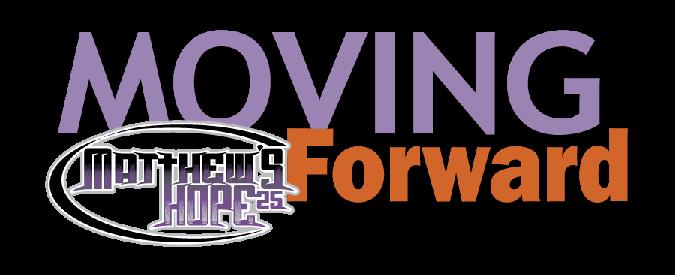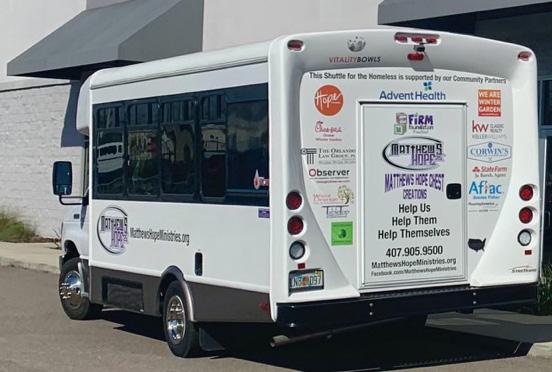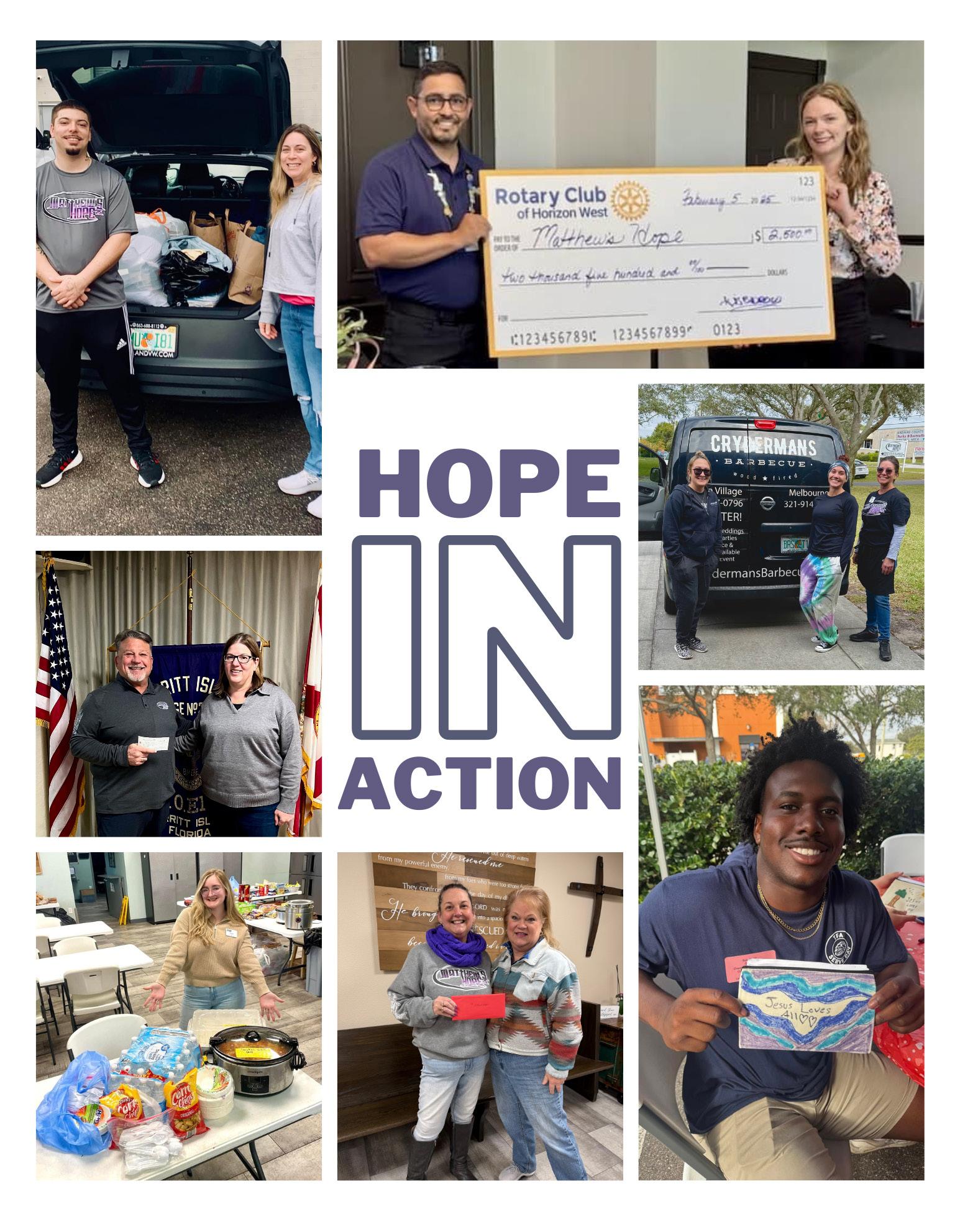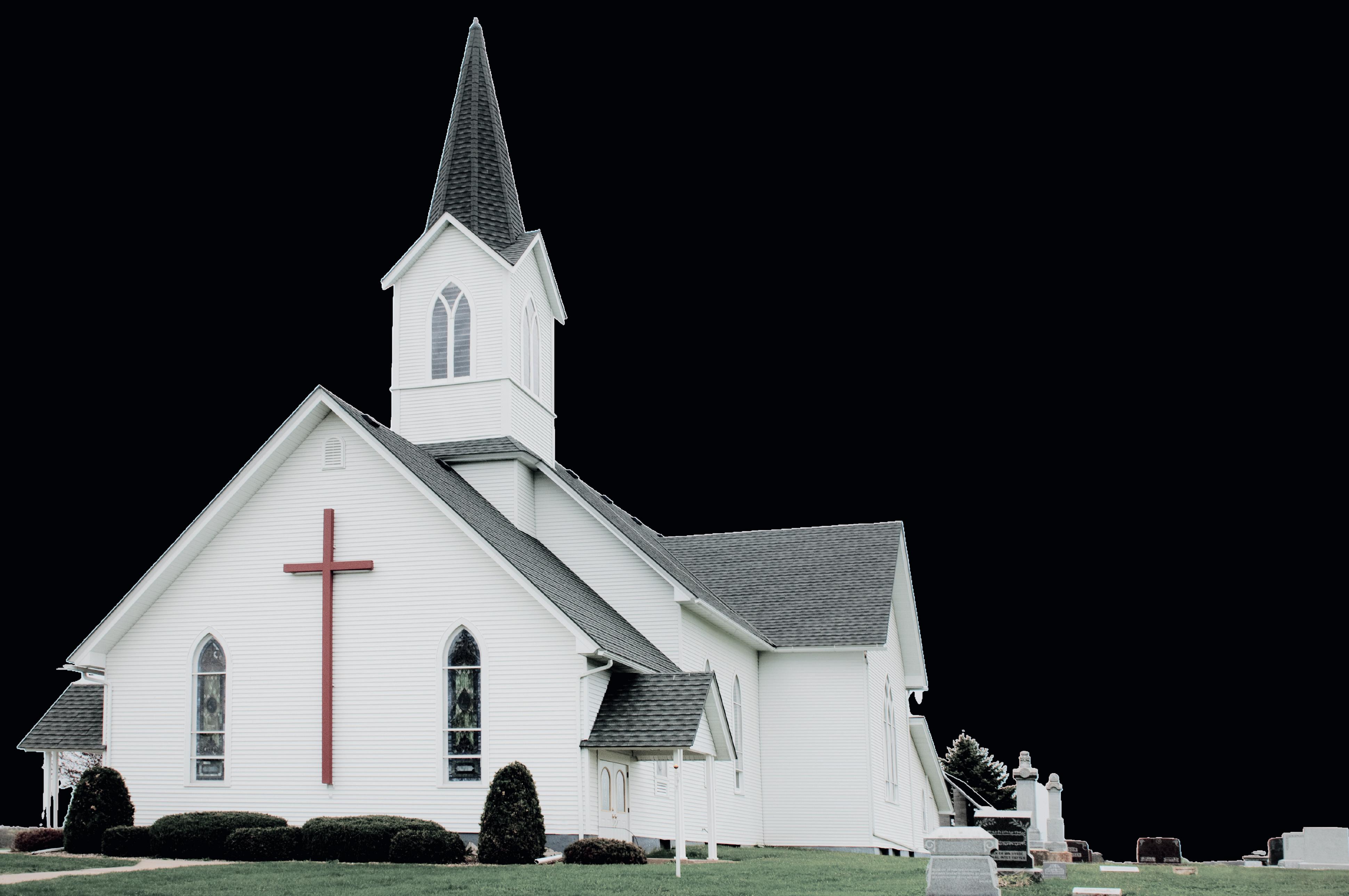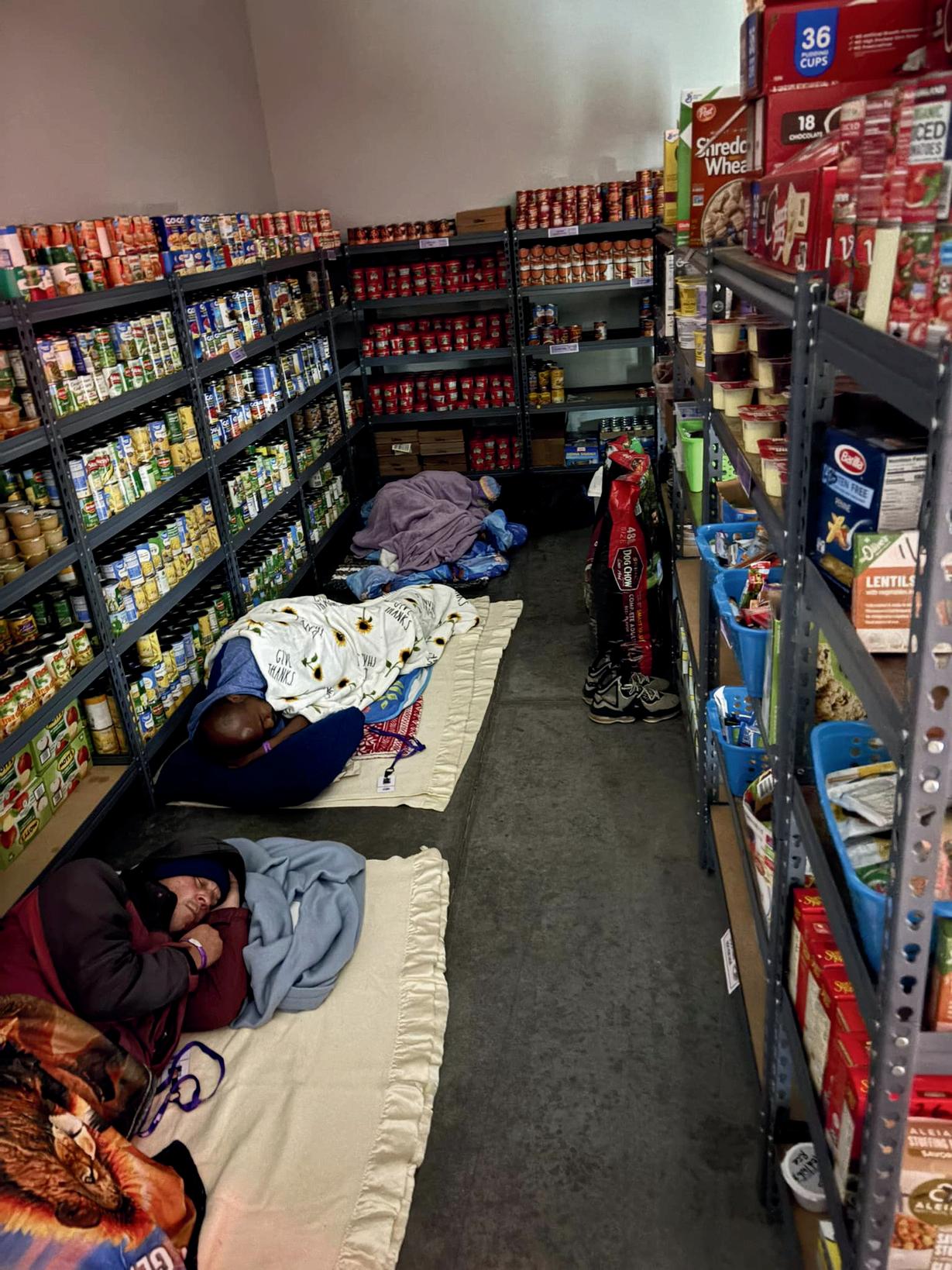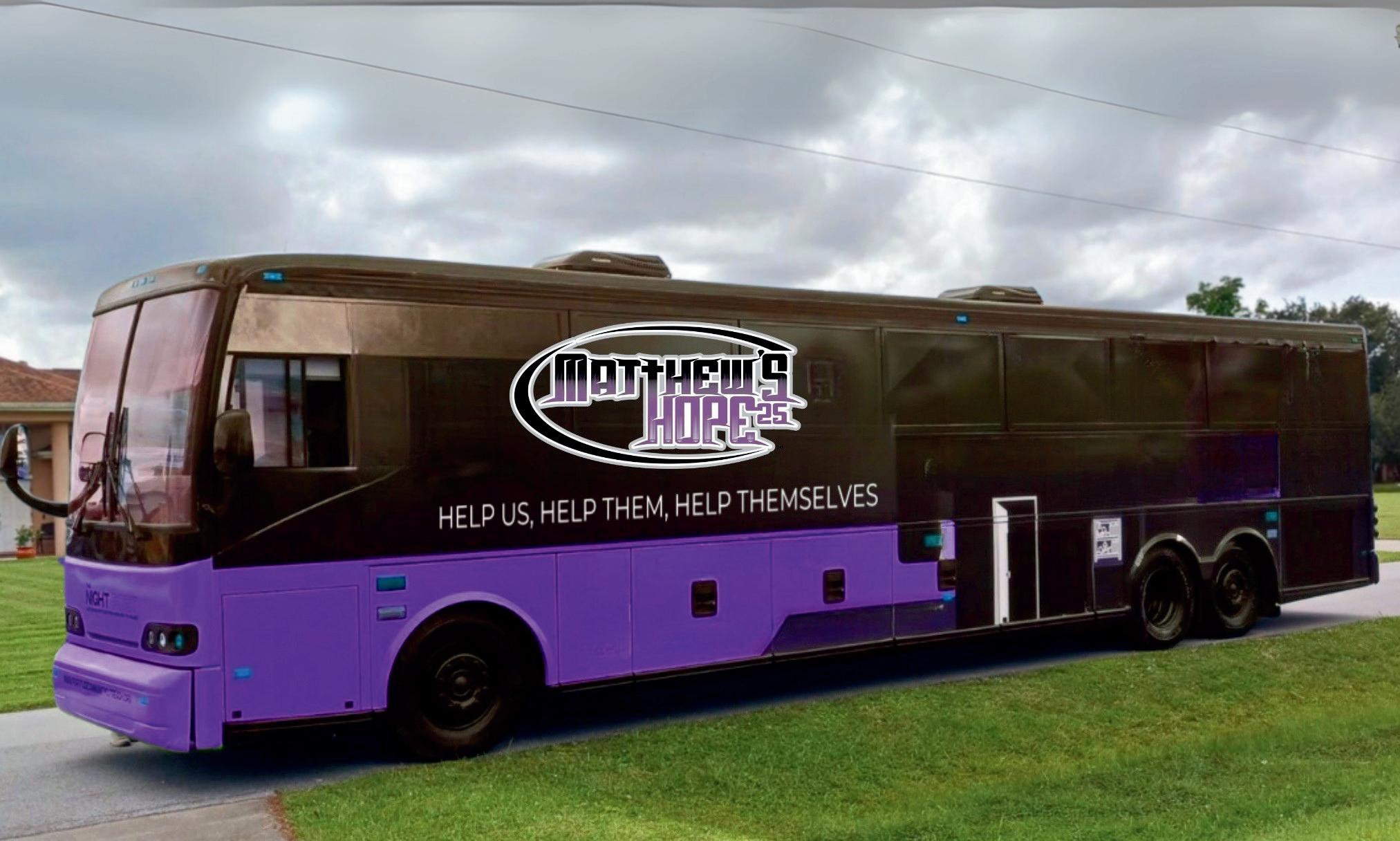FOUNDER’S FORUM
A WORD FROM THE MATTHEW’S HOPE FOUNDER, PASTOR SCOTT
March 30th is the 15th Anniversary of Matthew’s Hope, so shouldn’t we be celebrating? Let me say this, with all intended inflection…NO! We should not have to continually beg for support and grow and/or expand our services. Unfortunately, the homeless crisis continues to rapidly grow in our communities…and it really does not matter your political persuasion, as this issue has been ignored and underfunded for several decades. The truth is there has been a lack of movement in addressing this growing crisis even though the need has grown by double digits year after year, with our home state of Florida leading the growth nationally.
Our political leaders must become proactive in their approach to addressing the unfolding homeless crisis at the local, county, state and federal levels, we can expect more of the same year after year and “Not here” is not an answer to a plan. Arresting homeless people for simply having nowhere to go is not an answer. We must stop laying blame and start working together on real solutions to solve the growing crisis before us.
Unfortunately, Nonprofits, like Matthew’s Hope, do not have the resources to take this homegrown battle without the support of our State, County, and local leaders. While we have done our best to manage our growth both in terms of services offered and areas served, the resources required to serve this growing crisis far exceed our resources and capacity.
Spring is upon us, and Matthew’s Hope will continue to be proactive. We want to be at the fore-
front of the change we want to see in the communities we live in. Matthew’s Hope is a change maker, doing a lot with a little. We operate in the trenches. We see the souls we serve as real people, worthy of being treated with dignity, love, and compassion. These structurally challenged individuals are Baby Boomers, and those with physical and mental disabilities. They are veterans. They are mothers, fathers, sons, daughters, and children. If not us, then who? If not now, then when? Giving up is just not an option.
In closing, I would like to thank our community partners, and sustaining donors… without you, our mission stops dead in its track’s. Thank you for your trust and support over these many years. Let us continue to work together to be the change we all want to see in our communities.
The holiday season fills many of us with a desire to give back. We pack food boxes, gather warm clothes, and donate money to organizations serving the homeless. For a brief moment, it feels like the world comes together to help those in need. But when the decorations come down and the new year begins, that sense of urgency to give often fades.
At Matthew’s Hope, we believe that the holidays are just the beginning. What truly makes a difference in the lives of homeless individuals isn’t a one-time gesture but sustained support and, most importantly, personal connections.
Giving During the Holidays is Just the Start
The holidays inspire generosity. Whether it’s through office charity drives or community meal donations, many people feel a strong urge to spread cheer by giving to those less fortunate. However, this seasonal focus, while meaningful, is only a small part of the bigger picture. Homelessness doesn’t end when the calendar flips to January.
Organizations like Matthew’s Hope work year-round to provide resources, shelter, and care to those experiencing homelessness. While holiday giving helps fund these efforts, communities must remember that the challenges faced by homeless individuals persist every day of the year. Sustained support ensures nonprofits can offer consistent help and build lasting solutions.
Looking Beyond the Surface
One of the harshest realities of being homeless is feeling invisible. Guests who visit Matthew’s Hope often share that they’re rarely looked in the eyes or acknowledged in public. Many feel like they don’t matter.
Building personal connections can
change that. A simple act of kindness—like remembering someone’s name or sitting down to truly listen to their story—can restore a sense of dignity. These interactions remind individuals that they are seen, heard, and valued.
When we treat homeless individuals as neighbors rather than as problems to be solved, we foster a deeper understanding of their situations. This level of empathy lays the foundation for trust.
Building Trust Through Consistency
Trust takes time. For those who’ve faced rejection and hardship time and again, it’s not easily given. That’s why repeated, consistent interactions are so important.
At Matthew’s Hope, volunteers strive to move beyond transactional exchanges. Beyond providing meals, clothing, or supplies, they offer steady companionship. Whether it’s a familiar face at a weekly outreach program or a volunteer offering skill-building classes, these repeated interactions make a tremendous difference.
Every time someone takes the time to show up and engage, they create a ripple effect. Consistent care helps break down walls, allowing individuals to open up, accept help, and believe in the possibility of a better future.
Why Names and Stories Matter
There’s power in knowing someone’s name. Guests at Matthew’s Hope often describe the profound impact of hearing their name spoken with kindness. It’s a small gesture, but it carries incredible weight.
When we learn about someone’s story—their dreams, struggles, and hopes—we stop seeing them as just a statistic. This deeper understanding changes perceptions. Suddenly, the issue of homelessness becomes per-
sonal, and the drive to help becomes much more urgent and authentic. One guest, Gage, exemplifies the importance of this approach. After losing shelter and hope following personal hardships, he arrived at Matthew’s Hope hesitant and withdrawn. Through patient support, skill-building workshops, and a genuine human connection, Gage found his footing. Today, he is housed, employed, and mentoring others who are navigating similar challenges. His story is a testament to how relationships can transform lives.
The Role of a Connected Community
Nonprofits like Matthew’s Hope rely on community partners, donors, and volunteers to sustain their efforts. While one-time gifts are valuable, ongoing support ensures that critical resources remain available yearround.
To truly make lasting change, donors can:
Focus on meeting specific needs. Many organizations operate with limited storage space and have high demand for particular items, such as toiletries, durable shoes, or non-perishable food.
Consider monthly contributions to provide steady funding for essential services.
Beyond donations, volunteers play an integral role in creating a vibrant, supportive community. At Matthew’s Hope, there’s a need for a variety of talents—from cooking meals to teaching skill-building classes like sewing, carpentry, and budgeting. Every skill shared helps empower guests to regain independence and confidence.
How You Can Help Today
Donate to support year-round services at Matthew’s Hope. Volunteer your talents to empower individuals through skill-building.
One of the things I love about our community is it’s generosity. However, I’m concerned that your generosity might not be seeing the results you expected. Every time we go to a store, it seems like we’re being asked to “round up” for charity. This leaves several questions you should ask:
1) Is the store matching your donation? Aside from convenience, what is the benefit to you or the not for profit for collecting the donation?
2) When will the donations be delivered? The reason for your generosity was because you felt drawn to the cause. From collections for disaster
relief or the homeless, the need is great and immediate. If the donations won’t be delivered on a timely basis, than what is the purpose?
3) Who receives the tax deduction?
A few dollars is not a big deal, or is it? First, as the President of Matthew’s Hope, I can assure you, every dollar counts. Second, you should ask yourself why should another company receive the tax benefit for your hard earned money. Finally, the checks we receive from the large corporations collecting your money is far less than what you think.
It’s not just “round up” donations at
the grocery store. We should really be asking the same questions when we give at Church or pay our taxes. We can’t just assume that the dollars we give will be used the way we expect... unless, we give direct.
I know it’s convenient and feels good to donate on the spot. However, if we really want to make a difference, it’s best to donate directly. Matthew’s Hope makes it easy. You can donate online at www.matthewshopeministries.org and you can choose whether you want your donations to stay in Orange County or be used to support our Brevard campus.
beginning all over again,” Scott shares. “Each winter, at least 35 people in the state die from exposure. I wasn’t going to let that happen here.”
He and his team, led by Matthew’ Hope President Shelley Bradford, scrambled to make room, but their facility could only hold so many, and the need far exceeded capacity. Faced with an overwhelming crisis, Scott and Shelley did the only thing they could—they asked for help in what was another déjà vu moment.
Back in 2010, Pastor Scott knocked on doors, made calls, pleaded on social media. He and his small team personally contacted at least 30 churches and heard the same excuses over and over. Liability issues. Security concerns. And the most heartbreaking one of all: But what if they were to come to church? Then, finally, a yes.
With that one yes, Pastor
Scott loaded up his pickup truck and began gathering people—pulling them from street corners, from the woods, from hidden spaces where they had tried to huddle away safely from the wind.
“We had nights with temps so low we kept our doors open 33 days over a 90-day period. We let them stay and didn’t kick them out when daylight came. We fed them, let them bathe, and let them sleep. We were overwhelmed by the numbers of people.”
This year was much the same. “We had people everywhere—sleeping on floors of offices, our hair salon, in pantries. Every square foot was covered, and we needed more help. We asked if any churches could open their doors for the overflow, and then the TV evening news got hold of our story. It started being shared on social media. And Winter Garden stepped up. In a big way.
“The Dream Center took in women and families after we’d fed and cleaned them up. The Church of The Cross provided additional sleeping space. Ultimately, the whole West Orange community came through for us with donations of food, pillows, blankets, and warm clothing. Often, it was children encouraging their parents that got things moving. I had small kids come by to give us their allowance! We have an amazingly caring and loving community.”
Matthew’s Hope is no longer just an idea based on Matthew 25:35-46. It is movement.
Today, the ministry has expanded to two locations, serving Orange and Brevard counties, operating with an annual budget of nearly $15 million—only 6% of which comes from taxpayer dollars. Though rooted in Christian faith, Matthew’s Hope welcomes all people of all reli-
gions, or no religion at all. Atheists, Buddhists, Muslims, all are served with the same dignity and care.
Beyond shelter, Matthew’s Hope offers a path forward. Buses travel to seventeen municipalities twice a week. Mobile Teams reach those who can’t or shouldn’t be in group settings. Those who stay undergo background checks. Each person is given an MH Number, tracking their progress through the program, from medical and mental health care, to job training, to housing.
The philosophy is simple: nothing is truly valued if it is given for free. That’s why Matthew’s Hope created the Moving Forward program, a point system that allows people to work and earn toward various services such as cataract surgery, dental care, paying off legal fees or old debt. Every step is
designed to rebuild dignity, self-esteem, and a sense of purpose. There’s even a Montessori Preschool giving families in need a firm foundation for their children and providing the care needed so parents can work.
Still, Pastor Scott knows the work isn’t done. “We need to educate people on what homelessness really looks like,” he says. “I recently spoke to a class of young children and asked them, ‘Who are homeless people?’ They answered, ‘Lazy Bums. Drunks. Criminals.’ That is a learned response born of ignorance”.
The truth is, homeless people are you and me. They’re senior citizens, and people with disabilities, on fixed incomes. They are single mothers who lost a second job and couldn’t make rent. They are individuals with mental illness, self medicating due to the lack of services. They are veterans with PTSD who came home and couldn’t find work. Yes, some battle substance abuse, and some are recently released from prison
with nowhere to go, but not one ever chose this life. In some cases, one missed paycheck—just one—turned their world upside down.
Pastor Scott is calling on the community to give—not just money, but time, talents, and compassion. He’s challenging everyone to rethink what homeless really means. Because it’s not just about a lack of shelter. It’s about a lack of hope. And that’s something we can all help restore.
For more information
611
From Stability to Crisis: How Quickly
The path from stability to homelessness is often shockingly fast. A medical emergency, job loss, or unexpected rent hike can drive someone from financial stability to the streets in a matter of weeks. For people already living paycheck to paycheck, even a minor setback can start a cascade of events that ends in homelessness.
Close to 37.9 million Americans live in poverty, according to the U.S. Cen-
On any given night, over 582,000 people experience homelessness, per HUD’s Annual Homeless Assessment
While the incidence of poverty is much higher, the factors leading to homelessness demand unique, immediate interventions. A lack of affordable housing, dwindling social safety nets, and skyrocketing costs of living amplify this crisis, but timely advocacy and preventative measures can make all the difference.
The Stigma Divide
Homelessness carries an unjust stigma. It’s often associated with addiction, laziness, or poor life choices, while poverty evokes more empathy—viewed as an economic and often unavoidable problem. Why?
One significant reason stems from visibility. Poverty can often be hidden—someone may struggle silently with bills, living expenses, or missed meals, but homelessness is much more visible and subject to public judgment. Those experiencing homelessness are stereotyped and blamed, compounding their struggles and preventing them from accessing empathy or effective assistance.
This societal divide creates major barriers for unhoused individuals. Prejudice limits job opportunities, access to essential resources, and even political advocacy.
Supporting Solutions that Work
While quick fixes may offer temporary shelter or food assistance, these
band-aid solutions often perpetuate the cycle without addressing core issues. Here’s what’s needed instead:
Skill Development and Education
Too often, homeless individuals lack the resources or education needed to regain independence. Matthew’s Hope focuses on not just offering a handout but also a way up. By providing skills training, resume assistance, and educational resources, they empower people to rebuild their futures.
Addressing Barriers to Assistance
One of the biggest challenges for those experiencing homelessness is access to support systems.
Lack of a permanent address, phone number, or proof of identification can lock people out of vital services. Advocacy for more inclusive policies and innovative solutions—like using shelters as mailing addresses—can help remove these barriers.
Resource Allocation
Many programs pour resources into one-size-fits-all solutions that fail to meet the unique needs of individuals experiencing homelessness. Tailored approaches grounded in local contexts (like tiny home villages or housing-first initiatives) are far more effective for breaking the
Homelessness is Everyone’s Problem
We often think of homelessness as an issue limited to certain areas of the Country like New York City or San Francisco, but the truth is more universal. From suburban neighborhoods to small towns, this issue transcends geography, and occurs in “Red” States and “Blue” States. The next step lies in building nationwide awareness and working together to create long-term solutions.
What can we do as community advocates?
Raise Awareness: Start conversations in your neighborhood or workplace to shift perceptions.
Volunteer with Focused Organizations: Partner with nonprofits like Matthew’s Hope to provide support where it’s needed most.
Advocate for Policy Change: Push for affordable housing initiatives and improved access to resources through local governments.
Beyond Judgment, Towards Action
Addressing homelessness and poverty requires a shift in both judgment and action. By fostering empathy and understanding—paired with strategic, long-term interventions—we can change narratives, challenge stigmas, and help rebuild lives.
Want to make an impact? Join local initiatives, support organizations working directly with the homeless, or volunteer to provide skills training. Together, we can create pathways out of both homelessness and poverty, helping individuals regain stability, dignity, and hope.
Fifteen years after a deadly cold snap inspired Scott Billue to create Matthew’s Hope, another arctic blast tested its limits.
TComforts
From the
here is a particular kind of cold in Florida that makes you question everything. It seeps into your bones, settles in your teeth, makes you feel like your own blood has turned against you. It’s the kind of cold that makes curling up behind a dumpster, in the woods, or even on damp cardboard, seem like a luxury. When you’re homeless in the winter, you stop dreaming about warm beds and full plates—you just want to survive the night
and get a couple hours of rest. And sometimes, you don’t.
Homeless doesn’t mean hopeless. But some nights, it sure feels that way.
TIt was a brutal cold snap in 2010 that inspired Scott Billue to start Matthew’s Hope in the first place, after witnessing how freezing temperatures put the lives of the homeless at risk. He wanted to wrap every single one of those “souls” as he fondly calls them in warmth and love. He helped
KYLE MARTIN FRED LOPEZ
here’s no refuge when you’re homeless.
as many as he could, but not all. That winter, some lost their lives. He promised himself: never again. It’s what drives him every single day to keep the doors of Matthew’s Hope open.
life that is sustainable and self-sufficient. There is a lot more to the challenges we face than a place to sleep and food to eat.”
Every morning brings an unsettled feeling and a quest to find a safe place to sleep that night,” Don Salmon explains.
“You have to push on, but you don’t know where you’re going,” says Don, who spent six homeless years between Atlanta and Orlando.
“We are a ministry first and foremost, where we demonstrate the love and hope of Jesus Christ,” he says. But the goal goes far beyond just providing food and shelter. “Our mission is to move people from a life of homelessness and despair to an independent
In January 2025, an unforgiving freeze settled over Florida, with temperatures lingering in the 30s for weeks on end. The irony wasn’t lost on him—this icy stretch arrived just as Matthew’s Hope approaches its 15th anniversary.
“We’ve come so far in 15 years, but this felt like
Today, Don has a place to call home, a bank account, and a job— things he once thought impossible. It’s been three years since he last slept on the streets, a stability made possible through the unwavering support of Matthew’s Hope Ministries.
“It’s not a guarantee I made it, but I’m making it,” he says.
It’s small things like clean socks and a hot shower that keep Don grateful for how far he’s come.
Don was in his 30s when he was diagnosed with bipolar disorder, but he didn’t get the treatment he needed in time to stop a cycle of manic episodes. Twice he walked away from stable jobs and into homelessness in a moment of self-destructive behavior.
“You end up in your own world, your own reality,” he says.
Days were spent wandering the streets, followed by nights sleeping in a stairwell or the post office as protection from the cold. Trust in others was hard won in an environment rampant with scams and cons and prostitution. Malnutrition and exhaustion could convert a common cold into a serious illness. There was physical danger, too. Don was beaten with a fence
post and spent a winter with sutures in his head and hand. The brain injury only compounded his existing mental haze.
“There are so many dangers you can run across,” Don says.
A stranger’s kindness bought him a bus ticket to Orlando. It was the first time in a long time someone saw Don as a person, and he was surprised and hesitant.
“Sometimes there’s a light at the end of the tunnel and it’s not a train,” he says.
Don wasn’t sure what he would find here, but he reasoned it would be warmer than north Georgia. His initial hope it would be a new beginning proved false. When the bus dropped him off in downtown Orlando, Don sat for hours beside Lake Eola, wishing someone would tell him “hello.” The family and connections who would occasionally let him crash on a couch were left behind in Atlanta, leaving him totally alone.
“It was like being dropped off on the moon,” he says.
Days of wandering recommenced, constantly moving to avoid arrest for trespassing. He found a big box store where he could sleep in the stairwell. But there was no certainty, no stability.
Don was beaten with a fence post and spent a winter with sutures in his head and hand. The brain injury only compounded his existing mental haze.
“You’re just in transition on a daily basis,” he says.
About three years ago he connected with the Matthew’s Hope outreach team doing an event in Pine Hills. Matthew’s Hope Founder and CEO Scott Billue remembers that day well. He initially offered Don a Bible, which he turned down. But he did accept a pair of reading glasses, and a Bible after that. As Scott drove away that day, he caught a final glimpse of Don sitting on a wall reading the Bible.
The Matthew’s Hope team returned days later with the pair of jeans Don requested, which often surprises the people they serve.
“When we come back day after day, week after week, it builds up trust,” Scott says.
The more Scott interacted with Don, the harder it was to understand why Don lived on the streets. He was intelligent and articulate, with a strong work background and character. Now Scott knows it was the untreated bipolar disorder holding Don back.
“He’s the same sweet soul today that he was then. But now he can operate independently,” Scott says.
Scott invited Don to Matthew’s Hope for breakfast and eventually an opportunity to join the Moving Forward program. The program offers incremental rewards as participants work toward self sufficiency and independence.
Don took to the program with enthusiasm and completed any tasks given to him by Matthew’s Hope.
Occasionally, though, Scott would catch Don frozen like a statue pointing at the sky, or talking with people only he could see. It was a tough situation because as much as they loved Don, nothing was working, and it wouldn’t be long before he would have to leave the program.
Then the bipolar diagnosis came to light, and together they were able to secure the medication Don needs to manage his symptoms.
Scott describes it as “night and day.” “Suddenly this amazing person was there who could talk about anything,” Scott says.
That newfound stability helped Don advance through the Moving Forward Program and even
Don Salmon, shown here with Scott Billue, officially joined the Matthew’s Hope team full-time last December. A true jack-of-all-trades, Don will assist and support wherever he’s needed
“As a society we throw these people away every day,” he says. “We give up too early on people.”
land a job as a spotlight operator at Winter Garden Theatre before it closed.
For Scott, it’s evidence that mental health treatment needs more focus in the United States.
“As a society, we throw these people away every day,” he says. “We give up too early on people.”
Don is effusive with his praise for the organization that empowered him to turn his life around. “If we don’t support institutions like Matthew’s Hope, who’s going to catch people when they need to be caught?” he says.
Don encourages the public to show grace and kindness toward the
homeless. He was college-educated, working for a Fortune 500 company before mental illness pushed him into homelessness.
“You never know when things will fall apart. So just be careful how rough you are on people,” he says.
Don continues to build his future one day at a time. A place of his own, some savings, and maybe even a tee time are all on his wish list. Whatever tomorrow holds, Don is committed to paying forward the goodwill others invested in him.
“I have some good left in me to help others,” he says.
Our venue features three stunning ceremony locations and two elegant reception spaces, perfect


